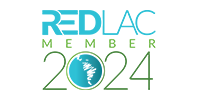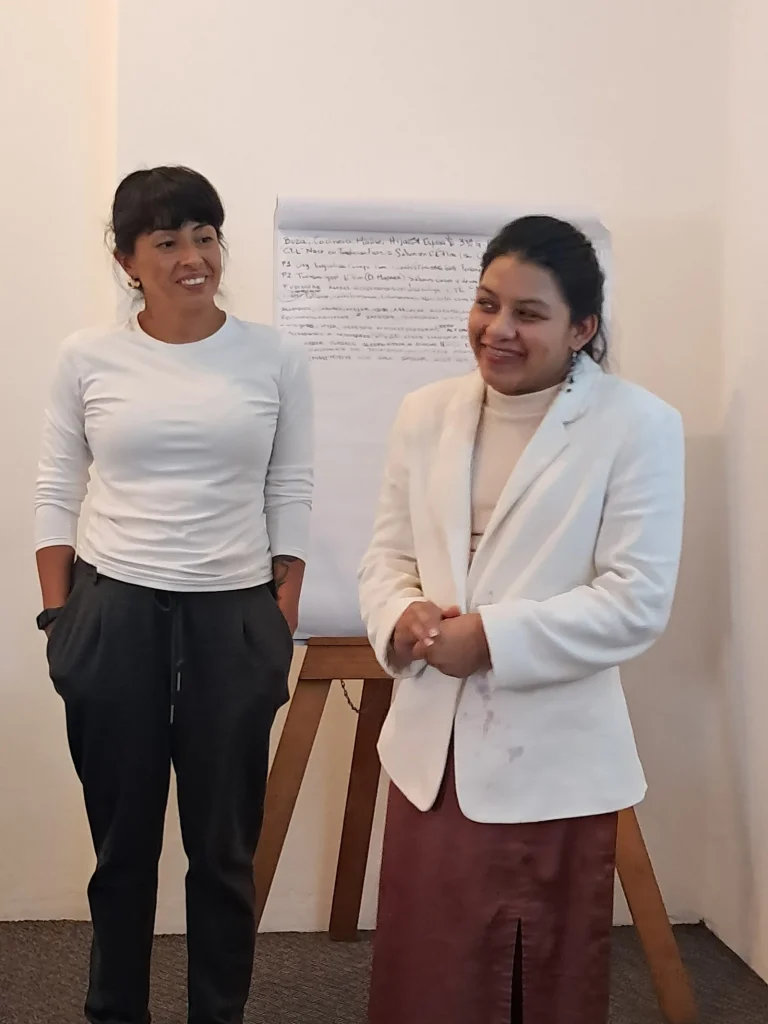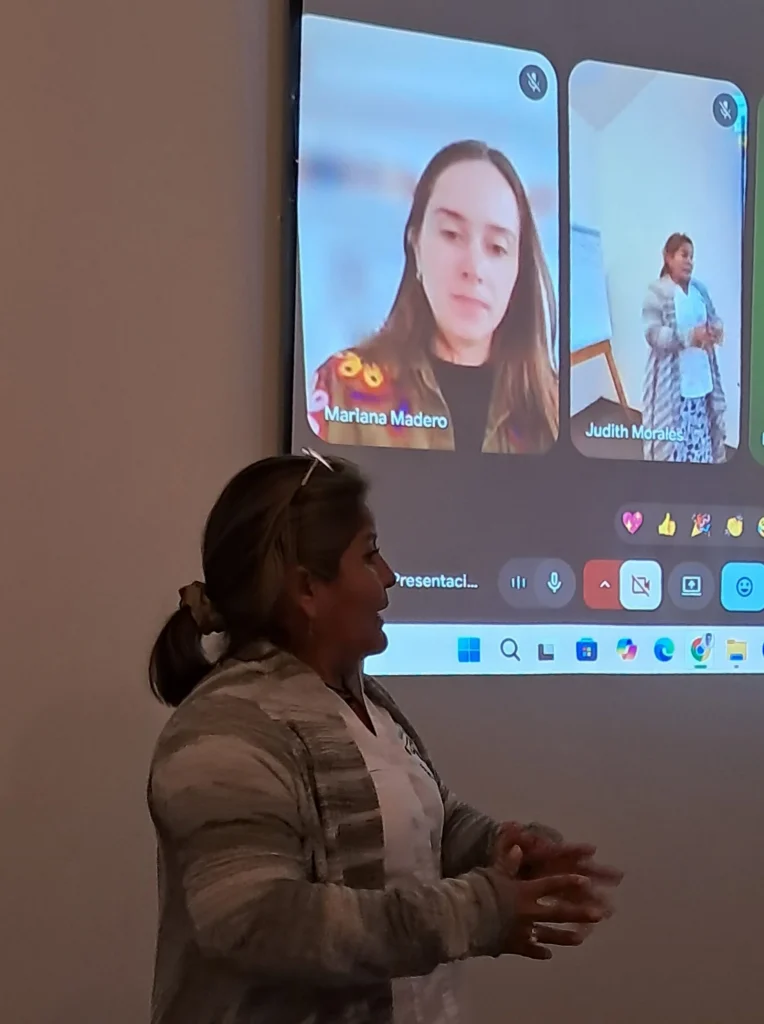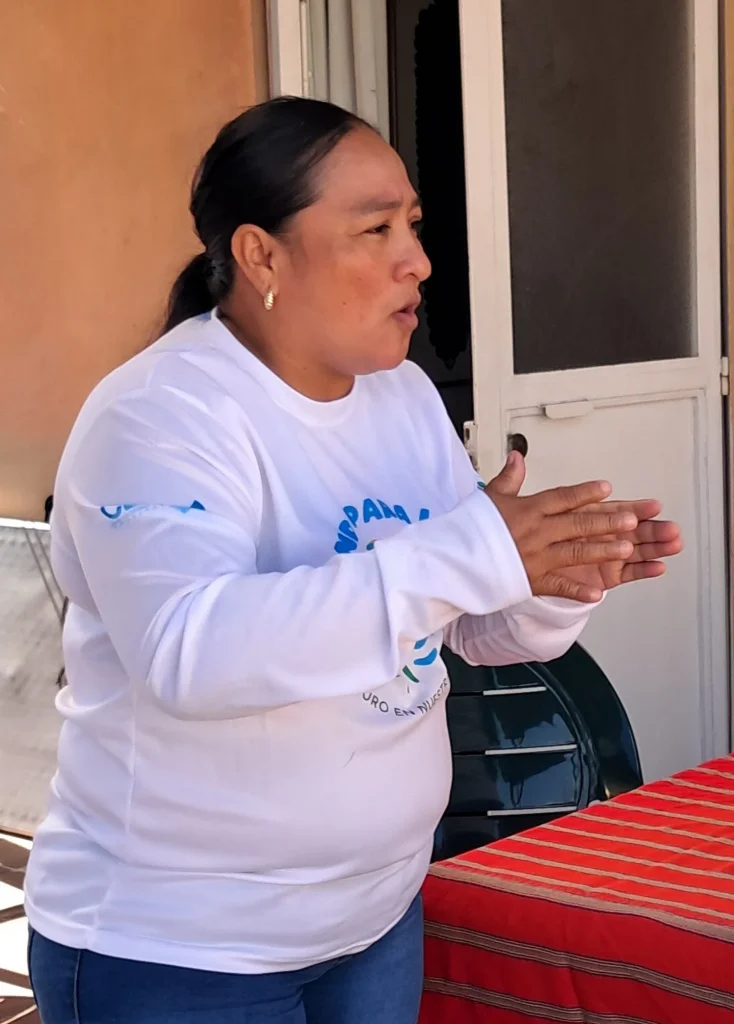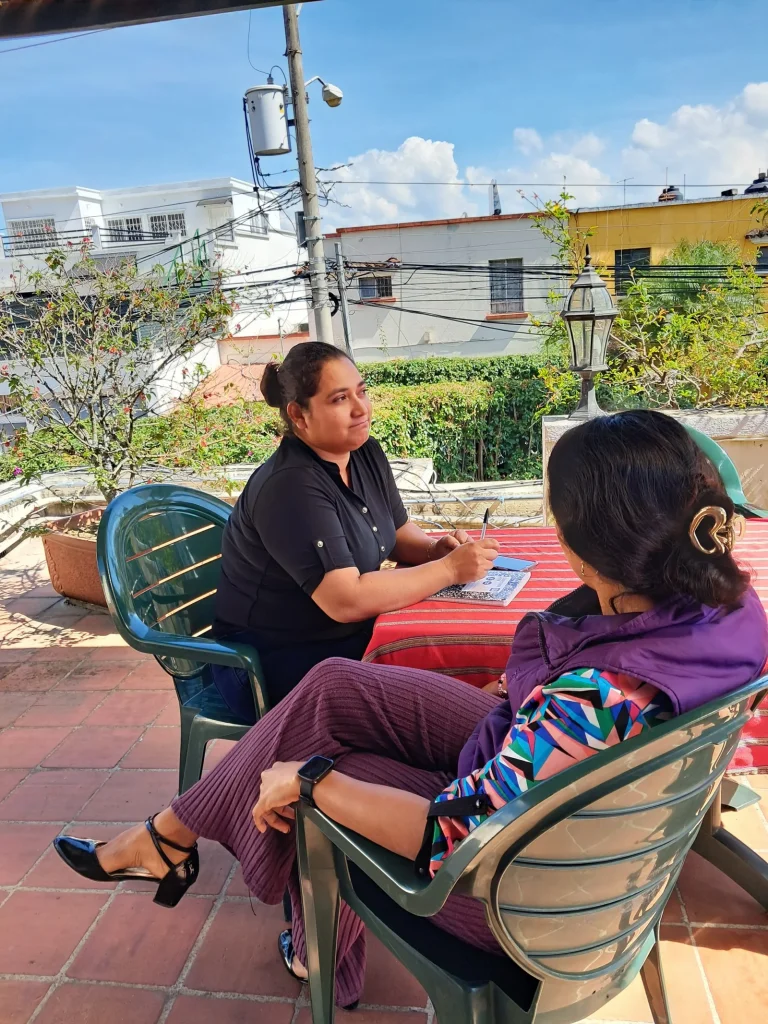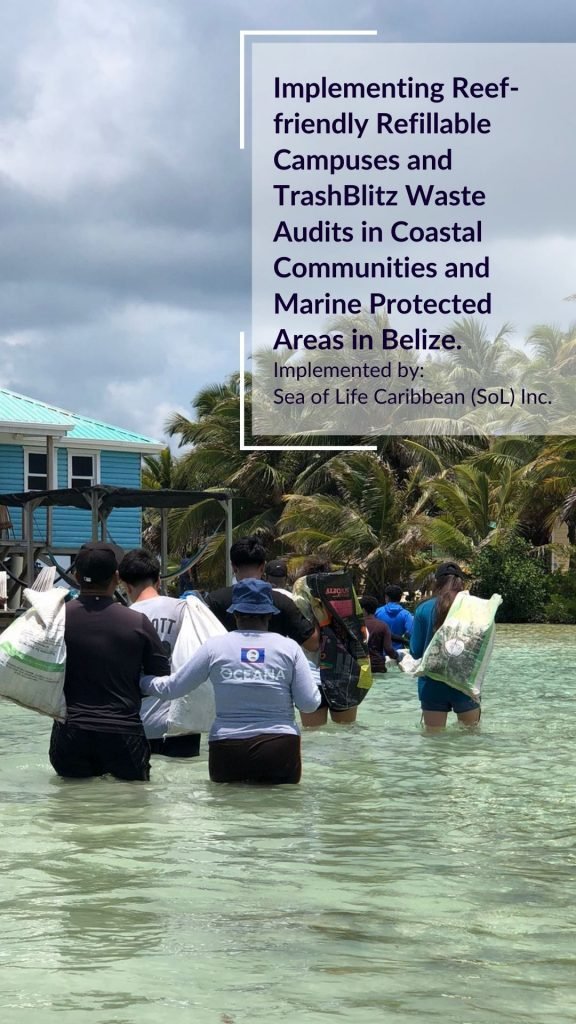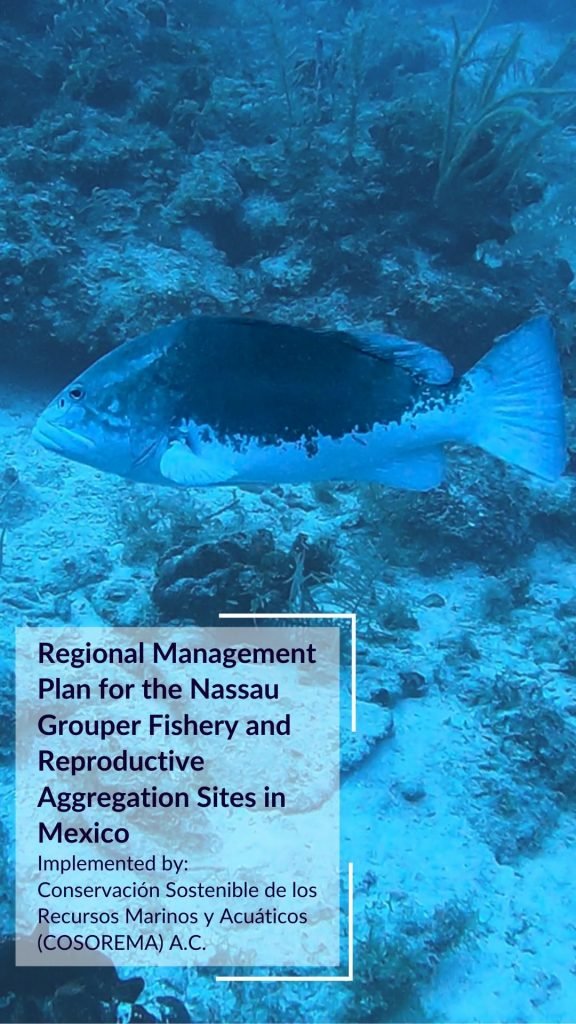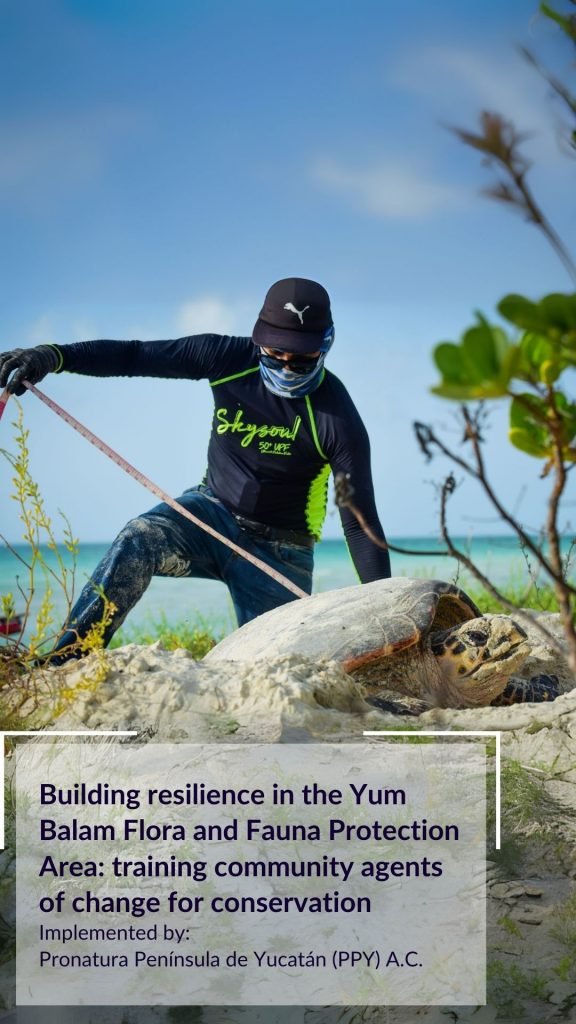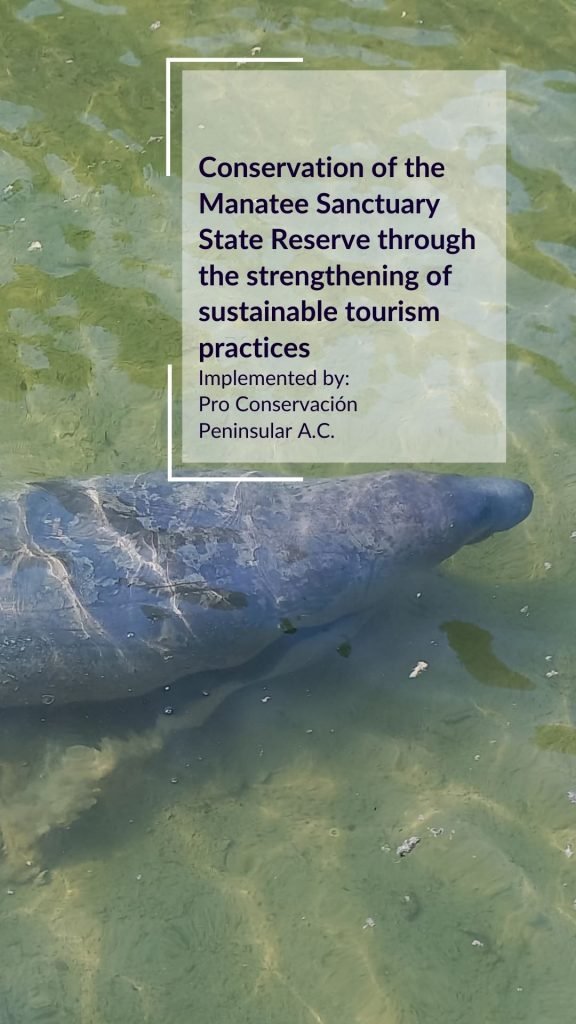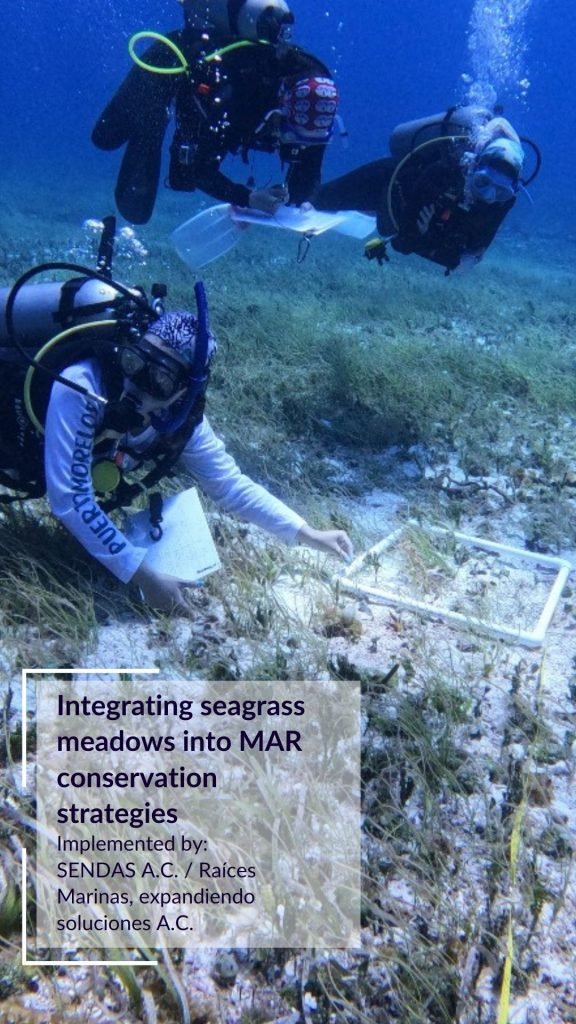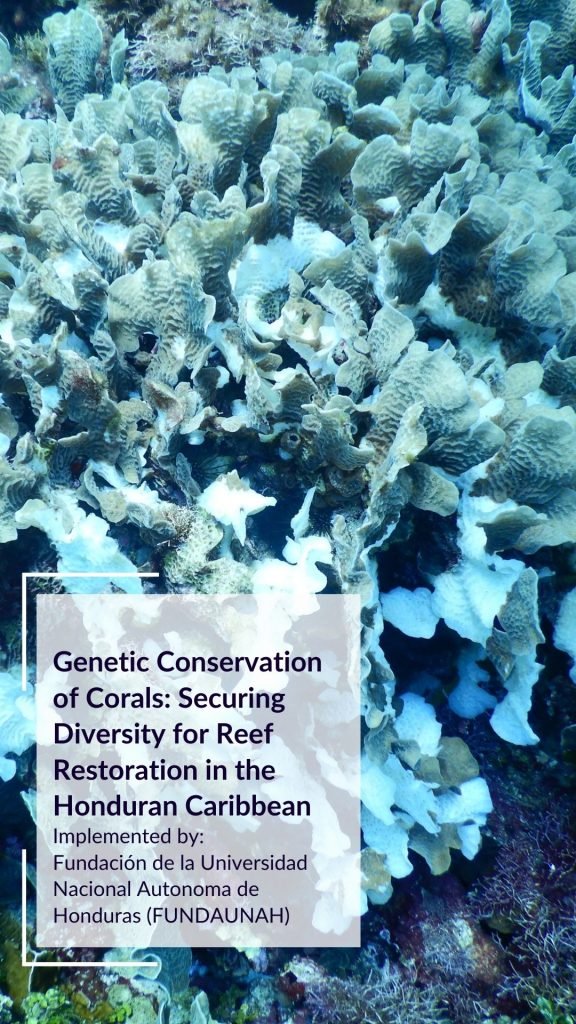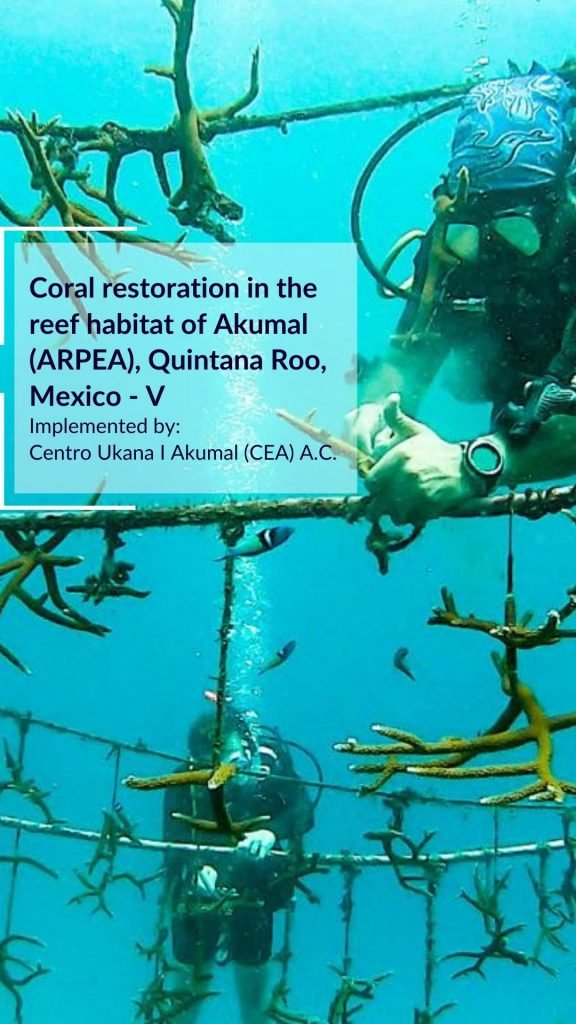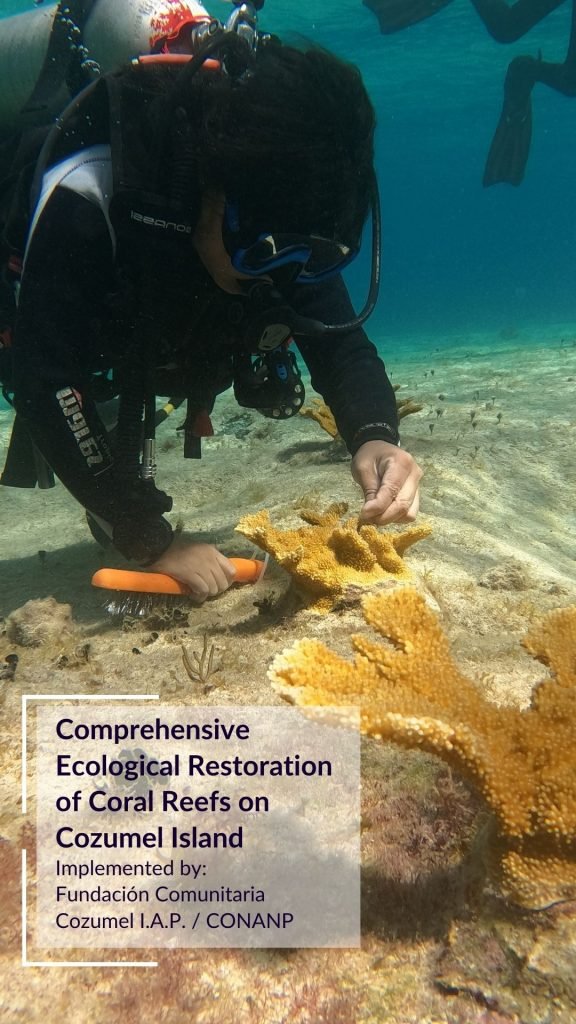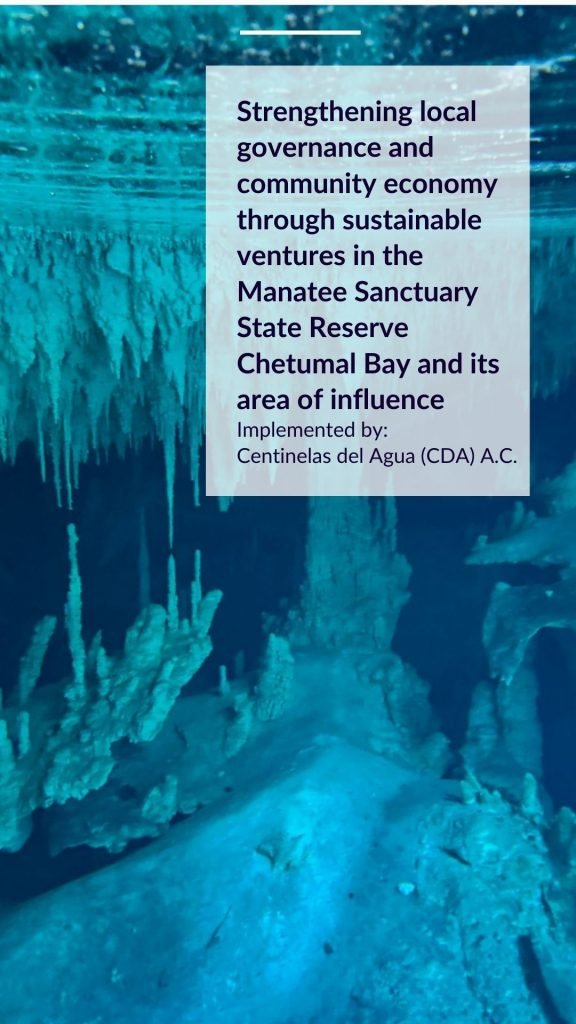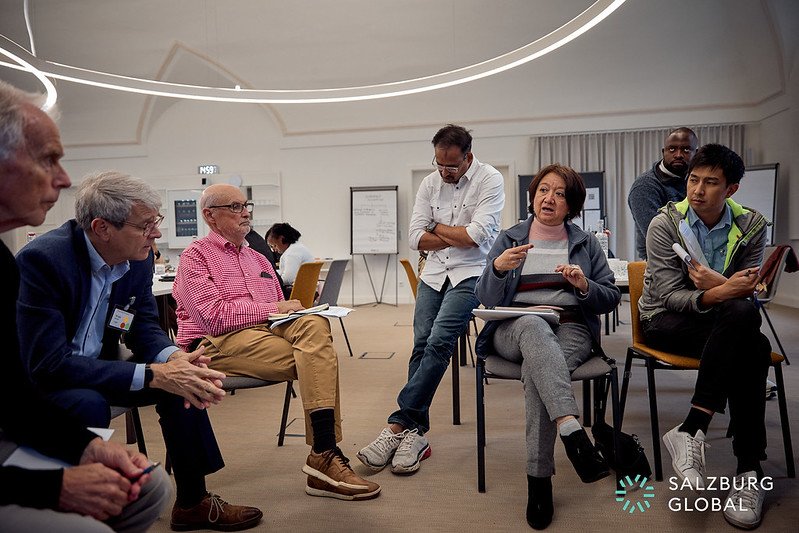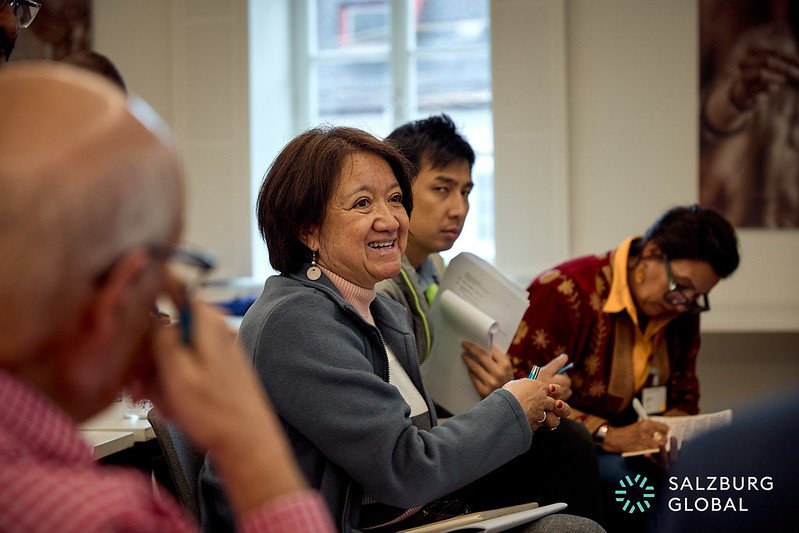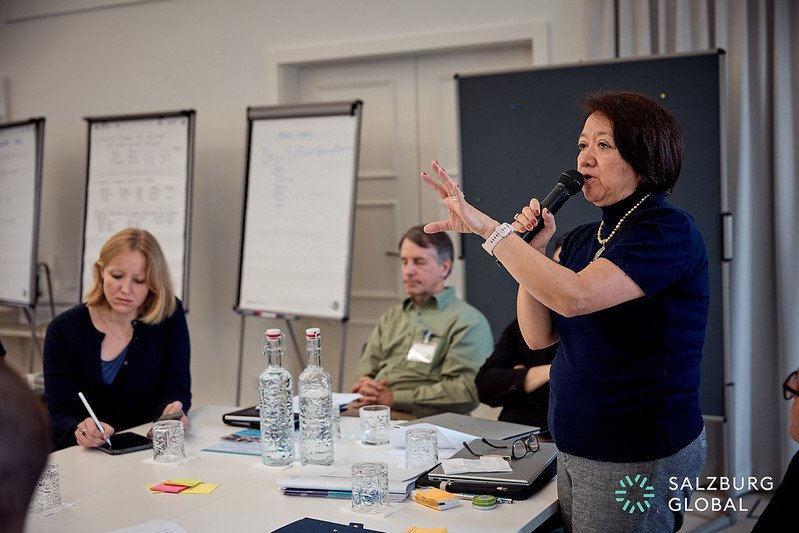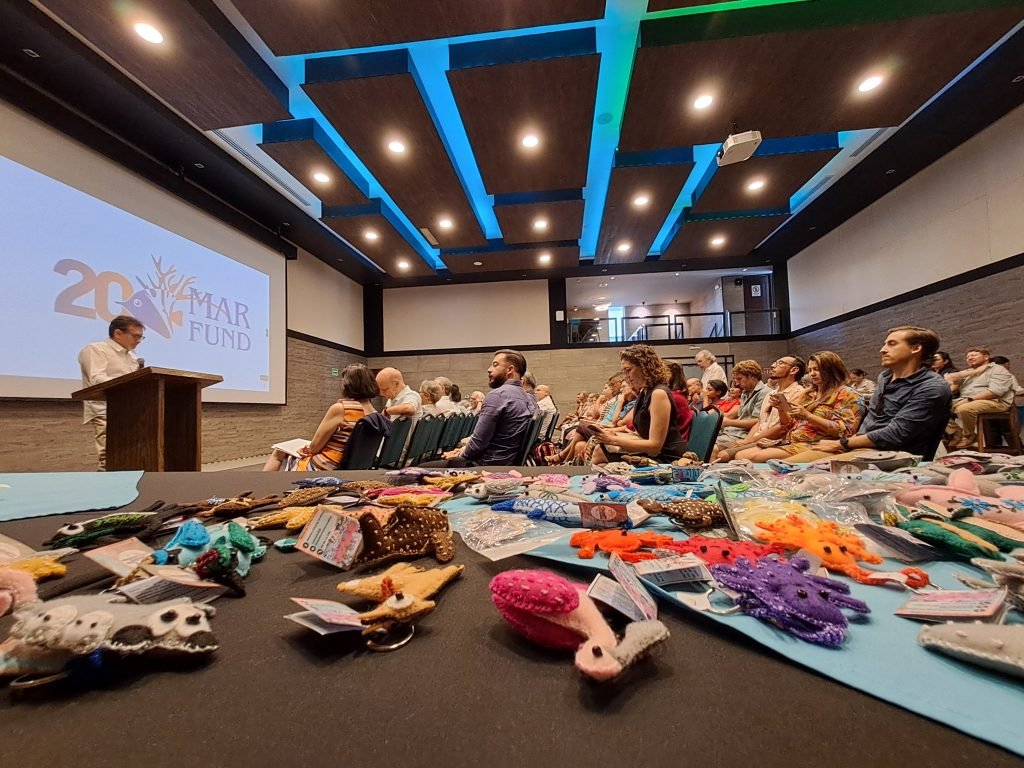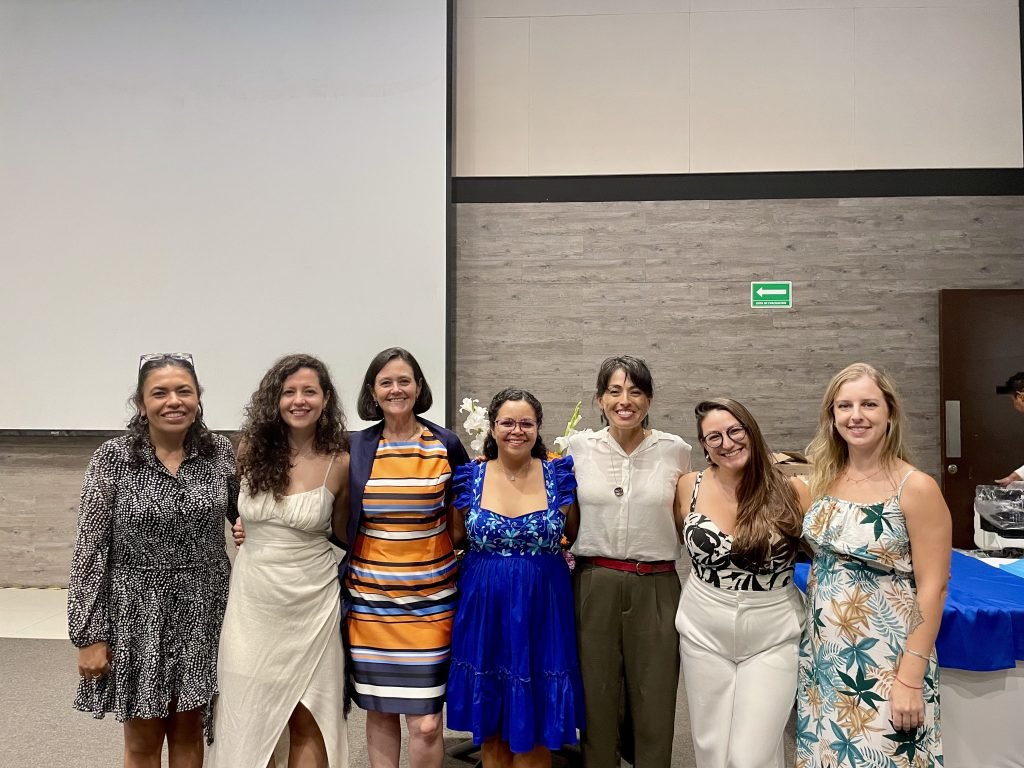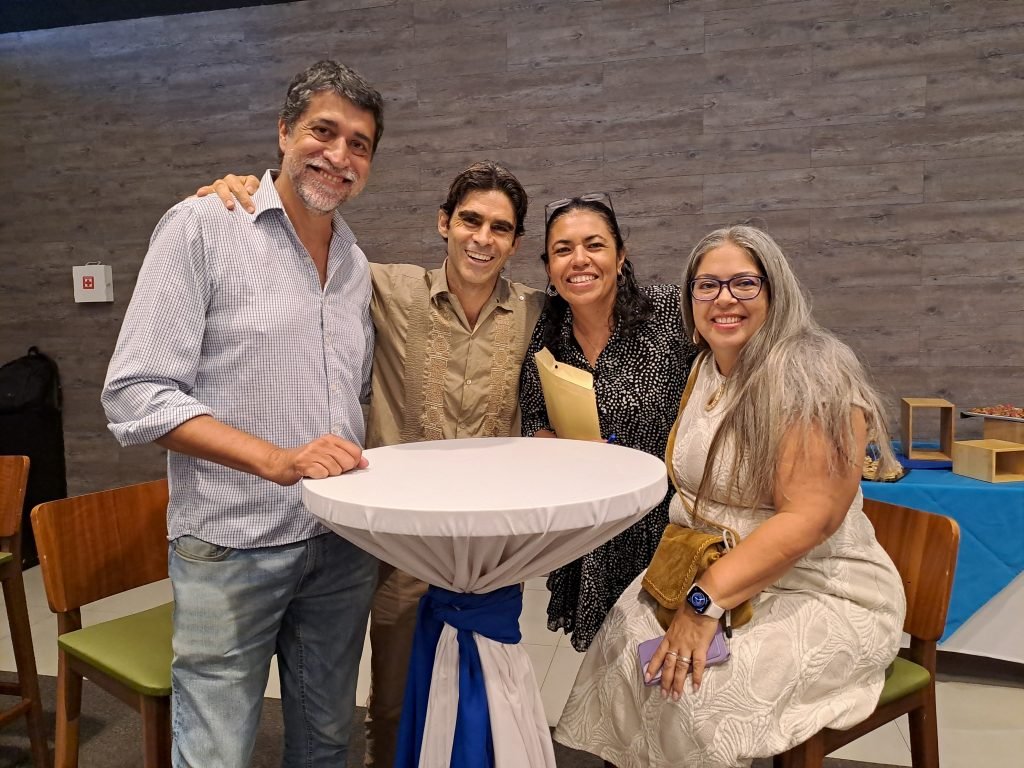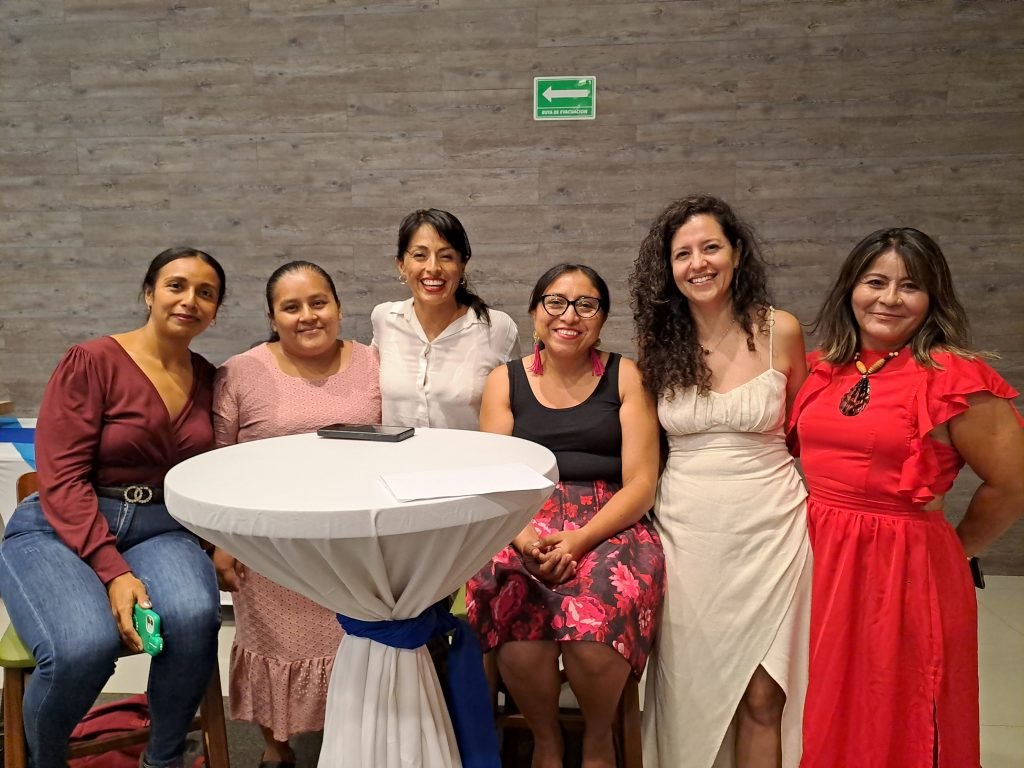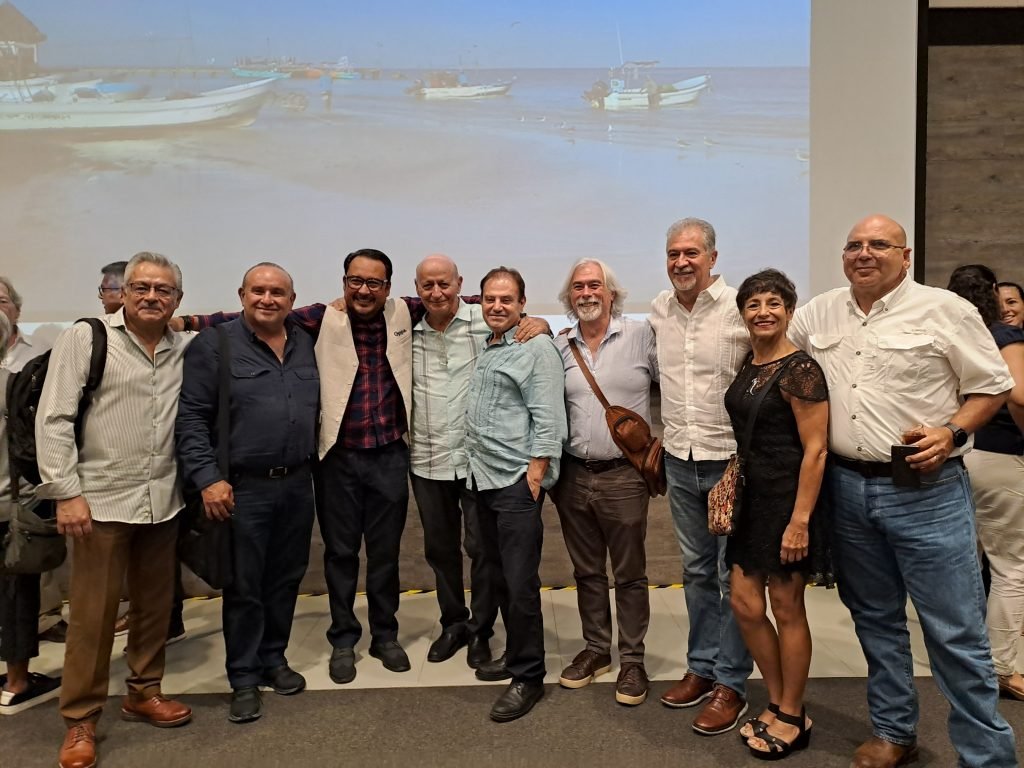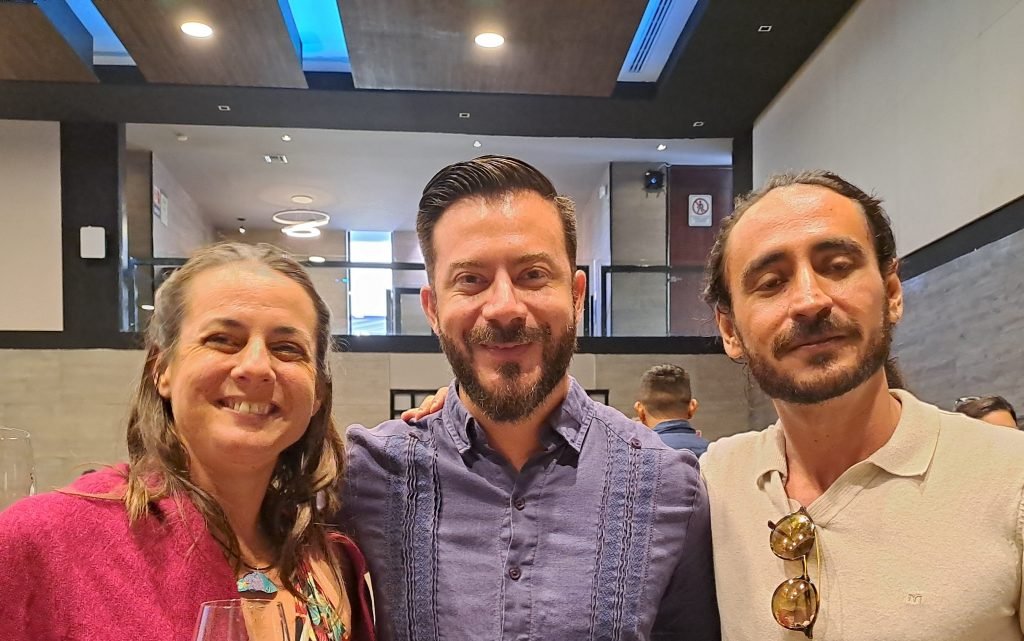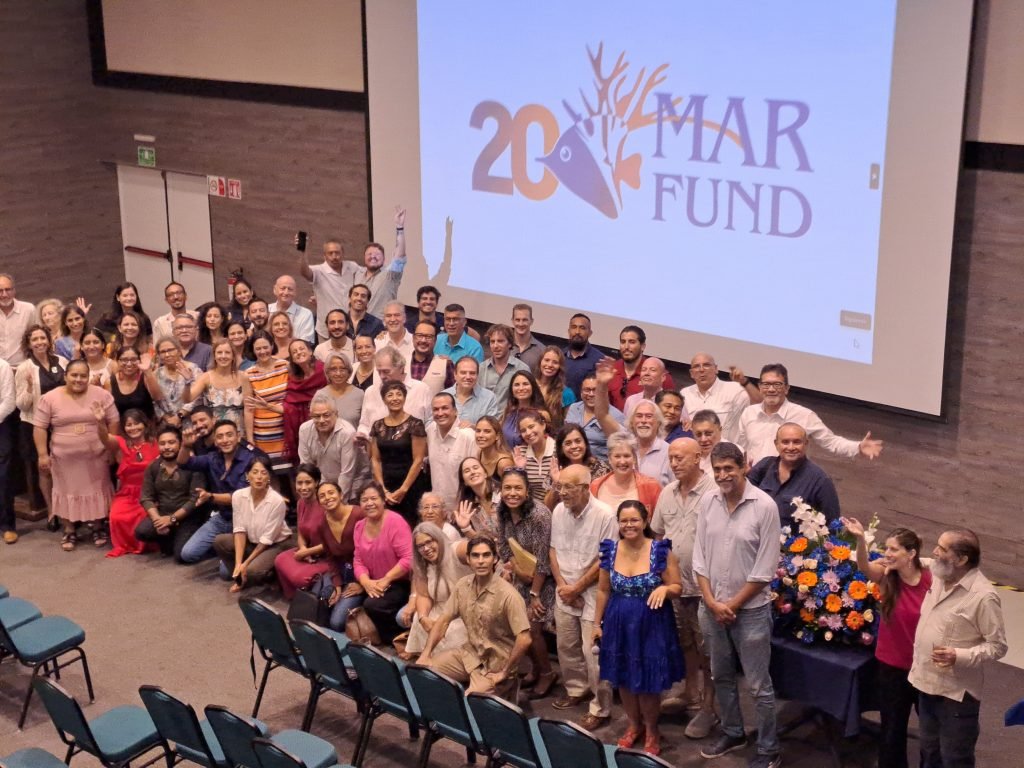Women Entrepreneurs of the Mesoamerican Reef Strengthen Triple‑Impact Initiatives
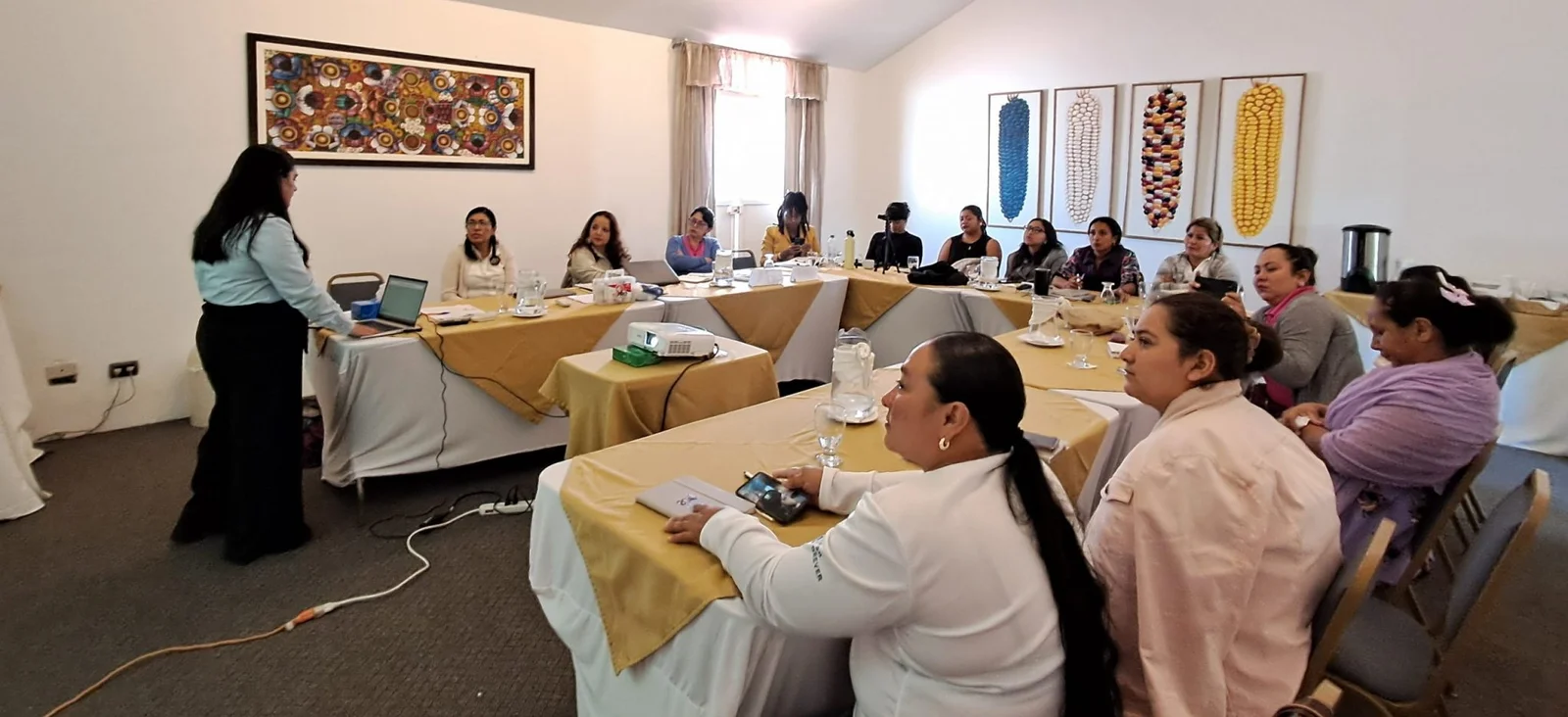
Photos: MAR Fund
On December 4 and 5, 2025, MAR Fund brought together twelve women entrepreneurs from Belize, Guatemala, Honduras, and Mexico in Guatemala City for a regional exchange to strengthen initiatives with a triple‑impact focus: social, environmental, and economic. The activity was part of the Blue and Regenerative Economy Program, through its Women for the MAR initiative, which seeks to promote the leadership and economic autonomy of women in the Mesoamerican Reef System (MAR) through the development of sustainable enterprises.
MAR Fund, Alterna, New Ventures, and Fempower LATAM strengthened key aspects of each project through plenary sessions and workshops on strategic narratives, application of social and environmental safeguards, design of stronger business models, and analytical tools that connect each initiative with the challenges and opportunities of the MAR.
The lecture by Mariana Madero, Director of MAR+Invest at New Ventures Mexico, allowed participants to deepen their understanding of current trends in impact entrepreneurship and the perspective of investors seeking solutions aligned with environmental regeneration.
The use of collaborative methodologies and innovative tools, including artificial intelligence applications and social media trends, enabled the 12 entrepreneurs to refine their business models, strengthen the communication of their proposals, and project their impact, integrating local knowledge, growth vision, and environmental commitment toward a truly regenerative economy. In addition to the tools and training spaces, the meeting created a valuable moment to recognize the challenges faced by women entrepreneurs in the MAR beyond gender issues: operating in territories with structural limitations, accessing fair financing, balancing community and family responsibilities, and sustaining initiatives that seek to protect ecosystems on which their livelihoods depend.
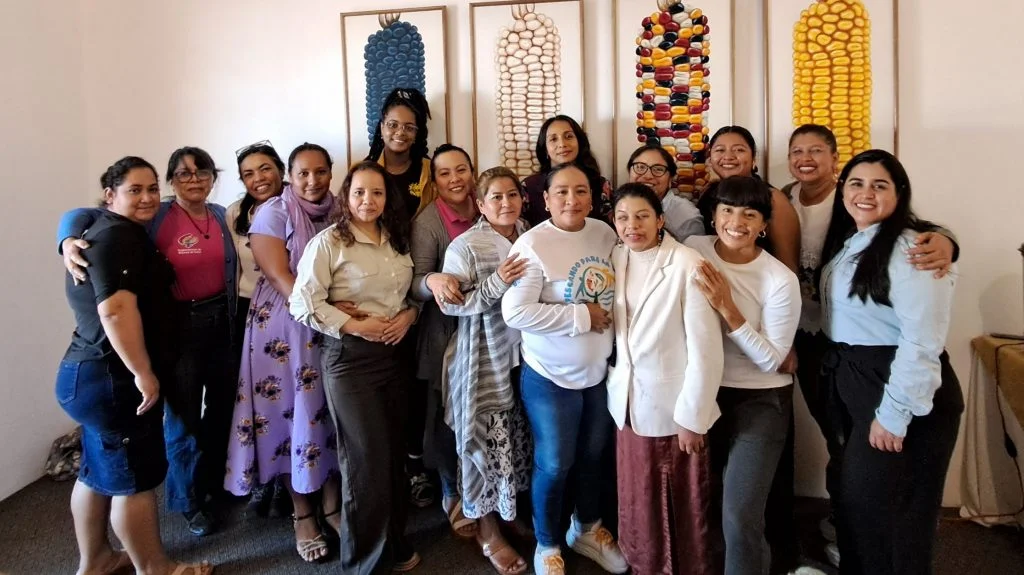
Sharing these experiences allowed participants to recognize common points, as well as the need for networks and support systems. This exchange strengthened collective confidence and consolidated a space where collaboration becomes a key strategy to continue moving forward.
“To know what each of the women is doing in our communities, to be able to share experiences and learn from other experiences in other communities similar to ours… how to work and what we are doing to strengthen the independence of women, which has been one of the battles we have been achieving… I felt proud to be able to share with other women who are fighting for our community, for women to raise our voices and for our work as women to be recognized.” — Dayani Rodríguez, Pescadería “La Bendición.”
The meeting concluded with the presentation of the projects in a simulated Investor Tank, before representatives of MAR Fund, Alterna, and New Ventures, who offered feedback aimed at sustainability, viability, and scalability of each enterprise. Three proposals with high potential were selected to receive seed capital as an initial boost to continue developing.
The winning proposals were:
- Cocina Lucy (Punta Allen, Mexico): Gastronomic enterprise with consolidated operation, coherent value proposition, and links to responsible tourism and citizen science in collaboration with the local fishing cooperative.
- Pescadería La Bendición (Omoa, Honduras): Women‑led initiative with clear progress in organization and formalization within the fisheries value chain, with potential to strengthen its commercial and community model.
- Mujeres BioFaunTásticas (Laguna Guerrero and Raudales, Mexico): Social project under structuring, with a solid educational narrative and capacity to evolve into a triple‑impact model linked to environmental and community activities.
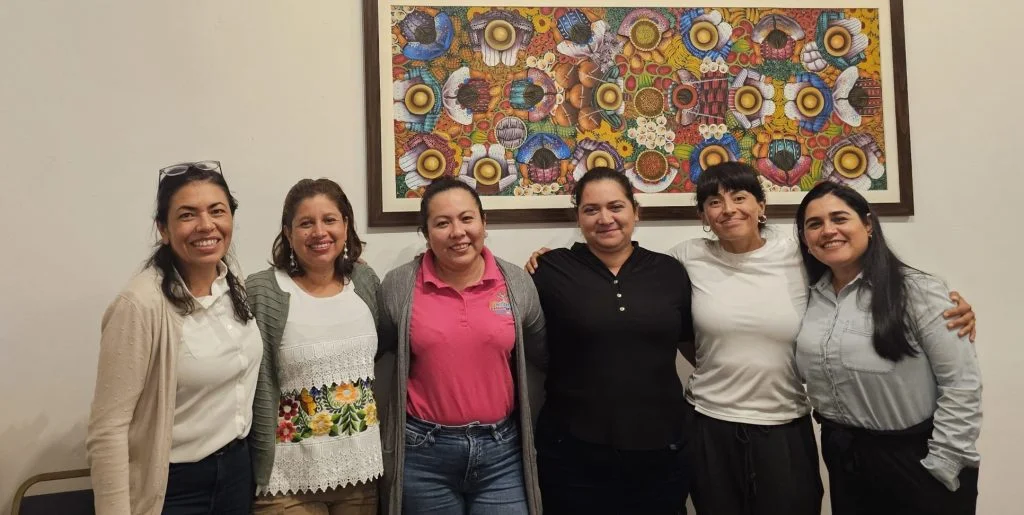 The participating entrepreneurs concluded the meeting with greater clarity to design proposals that integrate impact and profitability, as well as more confidence to communicate with investors, present their business models, and access regional support and financing networks.
The participating entrepreneurs concluded the meeting with greater clarity to design proposals that integrate impact and profitability, as well as more confidence to communicate with investors, present their business models, and access regional support and financing networks.
This meeting was made possible thanks to the support of The Summit Foundation, whose funding allowed the entrepreneurs to gather and create a space for learning, collaboration, and regional strengthening.
As a next step, MAR Fund will continue seeking spaces for these initiatives to keep growing, generating alliances, and contributing to the strengthening of an economy focused on responsible practices, innovation, and results that provide environmental stability and real opportunities for women in the MAR.
Photos: Liz Herrera and Mariana Borja – MAR Fund
Nine Selected Projects Will Drive Local Solutions for Conservation in the MAR
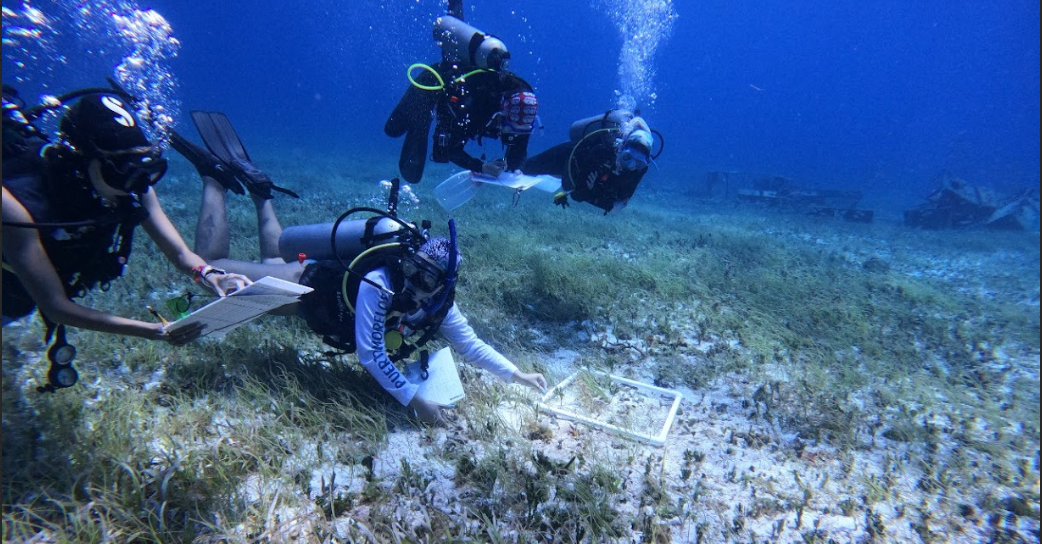
Photo: Raíces Marinas
The Mesoamerican Reef Fund (MAR Fund), in collaboration with the German Cooperation through KfW, the French Global Environment Facility (FFEM), the Paul M. Angell Foundation, and the Central American Commission for Environment and Development (CCAD), is proud to announce the nine winning projects of the 17th Call for Proposals under the Small Grants Program, through its two funding windows: the Traditional Window and the Reef Rescue Initiative.
These projects were selected for their strong potential to conserve the ecosystem functions of the Mesoamerican Reef System (MAR) and to strengthen its resilience. The initiatives will be implemented in Mexico, Belize, and Honduras, addressing critical challenges to the well-being of coastal communities and the health of the marine ecosystem.
The selection process evaluated technical merit, environmental and social impact, financial viability, and the experience of the proposing organizations. The winners include non-governmental and academic institutions, with active participation from communities, women’s groups, and key government stakeholders. All organizations will apply MAR Fund’s Environmental and Social Management System (ESMS) during project implementation.
The winning projects focus on these strategic themes:
- Sustainable ventures that deliver environmental and social benefits, including women-led initiatives
- Strengthening the resilience of protected areas and coastal communities against climate change
- Improved wastewater and solid waste management, essential for reef protection
- Conservation of fish spawning aggregations, vital for regional fisheries sustainability
- Coral reef restoration, repopulation, and rehabilitation techniques, grounded in science and community participation
“MAR Fund celebrates the passion and creativity of all the selected organizations. We are excited to see new proposals taking shape, as well as to continue supporting partners who have worked with us in previous calls. The diversity of the winning projects reinforces our comprehensive approach to MAR conservation. Each project adds up, and together we move towards a more resilient, healthy, and sustainable reef.” — Elisa Blanda, Small Grants Program Officer
MAR Fund congratulates all participating organizations and winners for their commitment and dedication to the MAR. Their work demonstrates how local action, driven by science, innovation, inclusion, and community participation, can transform the future of marine and coastal ecosystems.
We are pleased to share the details of the nine winning projects from this call for proposals. (Click to view full-size):
(Photos courtesy of the winning organizations, authorized for publication).
MAR Fund participates in the Salzburg Global Seminar on Building Resilient Communities
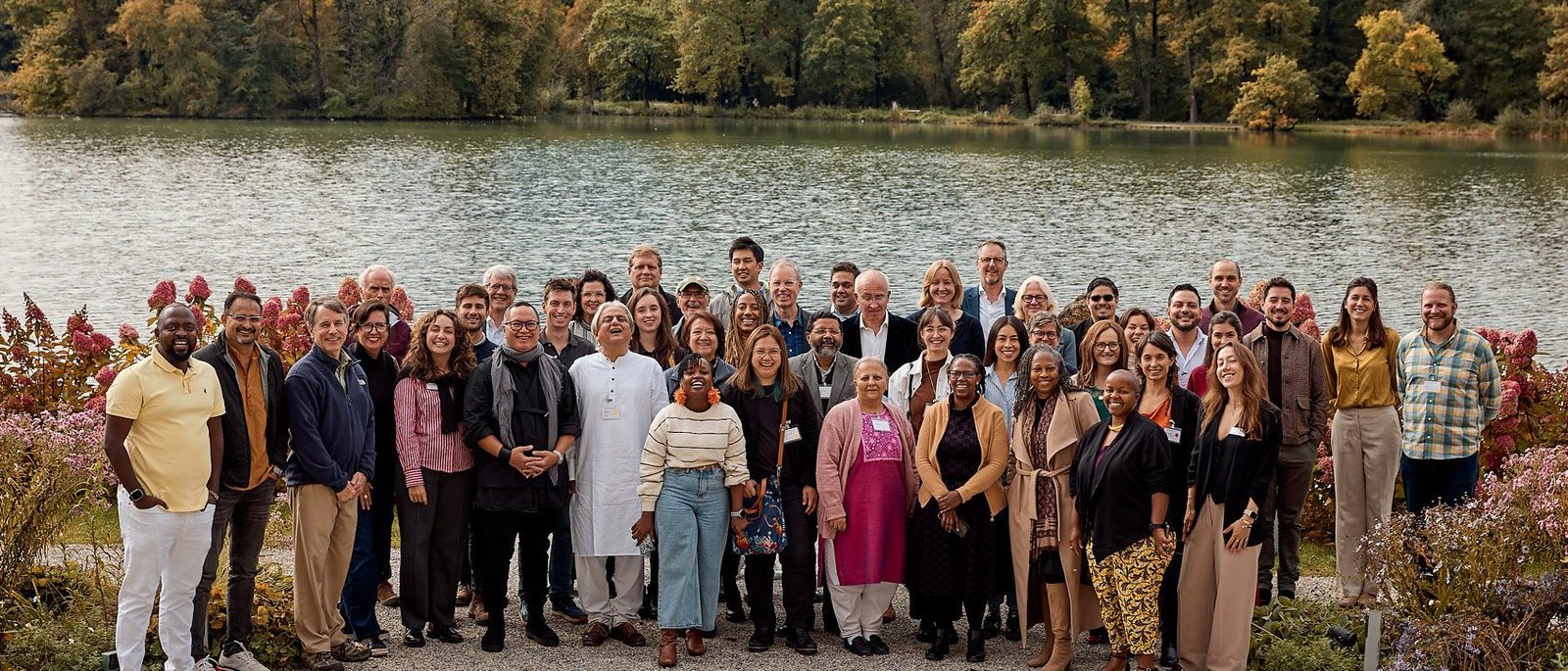
MAR Fund recently participated in the Salzburg Global Seminar “Building Resilient Communities: Insurance Solutions for Vulnerable Individuals and Communities,” supported by the Robert Wood Johnson Foundation (RWJF).
Held at the historic Schloss Leopoldskron in Salzburg, Austria, the event brought together international experts, organizations, and institutions advancing innovative insurance frameworks to enhance community resilience.
This seminar offered a valuable opportunity to exchange knowledge, connect with inspiring professionals, and strengthen global partnerships that promote insurance as a tool to accelerate recovery and reduce economic impacts in vulnerable regions. Amid the growing challenges of climate change, participants explored new approaches to investment and insurance mechanisms that strengthen resilience across households, communities, and ecosystems.
Representing MAR Fund, Claudia Ruiz, Coordinator of the Reef Rescue Initiative, shared our organization’s experience in developing reef insurance solutions that protect coral ecosystems and sustain the livelihoods of the communities that depend on them.
I’m very proud to be part of the Salzburg Global program and to represent MAR Fund in such an inspiring workshop. It was an incredible experience to meet and share with amazing professionals deeply committed to conservation, resilience, and insurance. I’m truly grateful to Salzburg Global and MAR Fund for this wonderful opportunity. – Claudia Ruiz.
We extend our sincere appreciation to Salzburg Global Seminar and RWJF for fostering this meaningful exchange and collaboration.
Photos Courtesy of: Salzburg Global
Innovative Financing for Coral Reef Protection, Repair, and Restoration in San Andrés, Providencia and Santa Catalina, Colombia
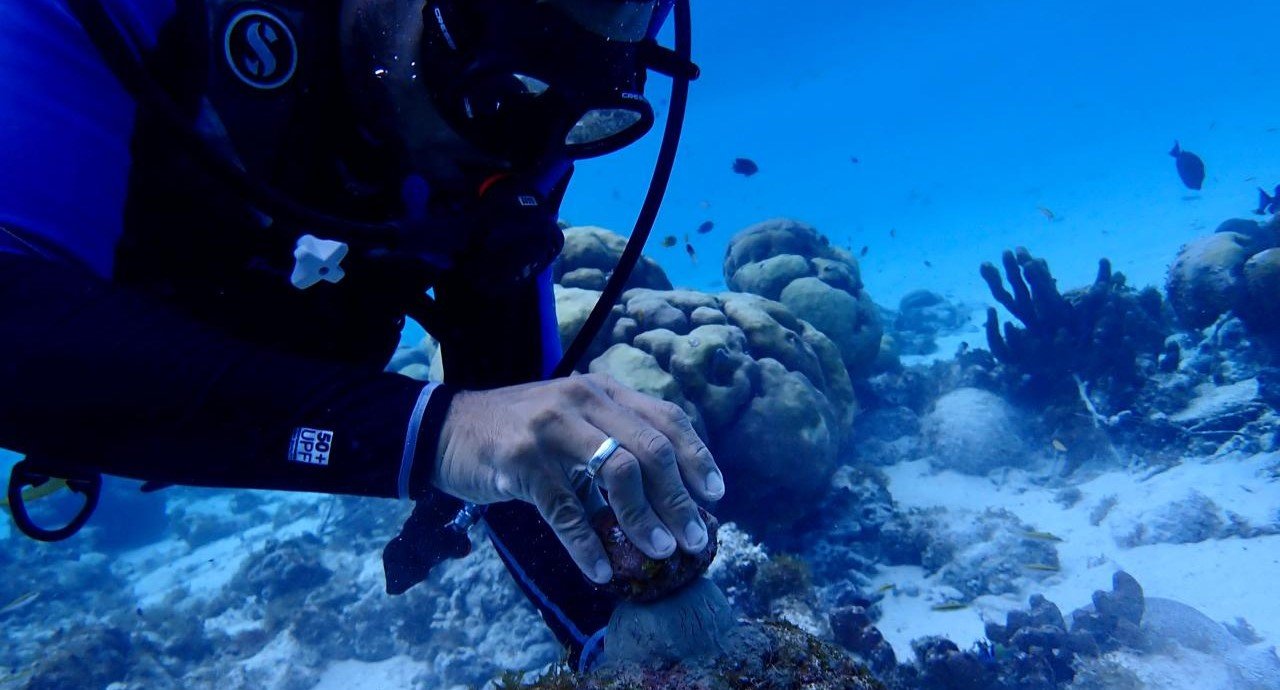
Photo: Juan Carlos Huitrón
In the face of climate change, Fondo Acción has successfully developed a parametric insurance mechanism for coral reefs in the Archipelago of San Andrés, Providencia, and Santa Catalina, Colombia. This milestone was achieved through a collaborative effort involving Fondo Acción, the Mesoamerican Reef Fund (MAR Fund), Willis Towers Watson (WTW), and the Ocean Risk and Resilience Action Alliance (ORRAA), with funding support from the Government of Canada, as part of the project Innovative Risk Financing Approaches to Enhance Ecosystem Resilience along the Caribbean’s Coastlines.
“This pioneering insurance mechanism in Colombia, linking science, finance, and community engagement, shows how innovative finance can help safeguard nature while strengthening the resilience of the most vulnerable communities.” Natalia Arango, Executive Director of Fondo Acción.
This initiative represents a significant step forward in ensuring that the Archipelago is better prepared, financially, institutionally, and technically, to protect and restore its coral reefs in the face of climate change.
“It is a privilege to be part of this strategic partnership, delivering an innovative solution that provides coverage for biodiversity in ways traditional indemnity insurance cannot—By developing a parametric structure that helps preserve the ecosystem, particularly the coral reefs that sustain the island’s life, tourism, and economy”- Juanita Blanco, ART WTW Director.
It also marks a major achievement in scaling the MAR Insurance Programme to new geographies where coral reef protection and post-disaster restoration are critical to the resilience of coastal marine ecosystems and the communities that depend on them.
“We are proud to be part of this innovative initiative in Colombia. Being able to share and transfer our experience has strengthened our collaboration with Fondo Acción, WTW, ORRAA, and AXA, allowing us to expand our work and grow the network of partners working together to boost the resilience of coral reefs and the coastal communities that depend on them”. María José González. Executive Director of MAR Fund.
The project established the technical and human capacity foundations for launching this pioneering reef insurance programme in the Archipelago. It also successfully built a Reef Emergency Response Network, ensuring that local communities are equipped with both the skills and resources to respond to reef damage following extreme weather events.
To guide response efforts, a Reef Response Coordination Committee was established within the Archipelago. In addition, 45 local residents were trained and certified in coral reef repair techniques to carry out emergency post-hurricane interventions. Four of them (2 men and 2 women) obtained advanced certification as reef response trainers, enabling them to further build local capacity and ensure long-term knowledge transfer within their communities.
A streamlined fund distribution mechanism was also developed to ensure rapid disbursement of insurance pay-outs, allowing for efficient and timely deployment of emergency reef response actions.
The success of this initiative was the result of strong coordination and leadership by the local environmental authority, Corporación para el Desarrollo Sostenible del Archipiélago de San Andrés, Providencia y Santa Catalina (CORALINA), with technical support from MAR Fund and WTW, and direct funding from ORRAA, made possible through the financial contribution of the Government of Canada via Environment and Climate Change Canada (ECCC).
“ORRAA’s support of Fondo Acción, MAR Fund and WTW in San Andrés, Providencia, and Santa Catalina provides a prime example of how innovative financing – like reef insurance – can integrate natural assets into disaster risk management. The importance of valuing reefs and mangroves as protective infrastructure cannot be underestimated, helping to safeguard nature whilst building the resilience of coastal communities on the frontlines of climate risk.” Chip Cunliffe. Senior Director, Innovation and Pipeline Development.
As a result of this collaborative effort, Fondo Acción, in partnership with CORALINA and a coalition of key actors—including AXA COLPATRIA and AXA Climate—successfully placed the first reef insurance policy for the Archipelago, which came into effect in June 2025, with funding support from the Blue Action Fund.
“It’s inspiring to see the world finally recognizing the true value of nature, and this coral reef insurance program perfectly embodies that shift. We’re proud to work alongside our partners to make this protection possible. But beyond the product itself, what truly matters is the partnership behind it. Because when genuine collaboration happens, innovative coverage like this becomes a reality, protecting coral reefs that are vital to marine ecosystems and to the livelihoods of coastal communities facing climate change.” Ariana Ospino, Business Developer Latam, AXA Climate.
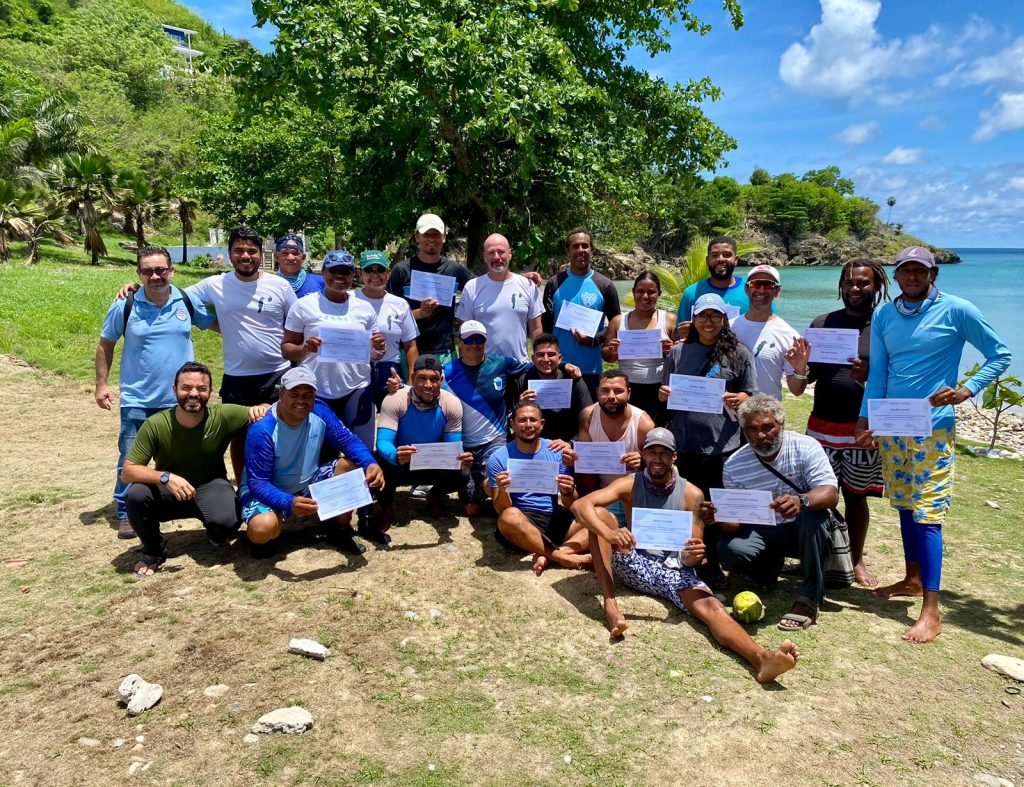
Photo: Pablo Devis
About Fondo Acción is a private Colombian fund with 25 years of experience investing in sustainable initiatives that protect nature and promote the well-being of children in Colombia. Its purpose is to enable actions that make it possible to care for the environment and ensure that boys and girls grow up in healthy, safe, and nurturing surroundings.
About MAR Fund
MAR Fund is a regional environmental fund that implements the Reef Rescue Initiative (RRI), whose main objective is to support the long-term ecological and economic viability of the Mesoamerican Reef. This is achieved through capacity building, strategic alliances, risk management instruments, and innovative financial mechanisms. Through the RRI, specifically the MAR Insurance Programme, MAR Fund collaborates with local conservation organizations and government agencies at each insured reef site to strengthen their capacity to implement reef response plans in the aftermath of hurricanes.
About WTW
At WTW (NASDAQ: WTW), we provide data-driven, insight-led solutions in the areas of people, risk and capital. Leveraging the global view and local expertise of our colleagues serving 140 countries and markets, we help organizations sharpen their strategy, enhance organizational resilience, motivate their workforce and maximize performance.
Working shoulder to shoulder with our clients, we uncover opportunities for sustainable success—and provide perspective that moves you.
About ORRAA
The Ocean Risk and Resilience Action Alliance (ORRAA) is the only multi-sector collaboration connecting the finance and insurance sectors, governments, multilateral organizations, civil society, and local partners to pioneer finance and insurance products that incentivize investment into coastal and ocean resilience, and through Nature-based Solutions.
The mission, by 2030, is to activate at least USD$500 million of investment to build the resilience of 250 million climate vulnerable coastal people in the Global South.
ORRAA is delivering system-wide change by growing an investable product pipeline and generating the transformative investment instruments, vehicles and policies that contribute to a regenerative and sustainable blue economy. These solutions enable coastal communities and the Ocean to adapt and thrive, creating greater economic, social and cultural resilience.
This project was supported by the Ocean Risk and Resilience Action Alliance (ORRAA) and undertaken with the financial support of the Government of Canada through the federal Department of Environment and Climate Change.
Ce projet a été réalisé avec l’appui financier du gouvernement du Canada agissant par l’entremise du ministère fédéral de l’Environnement et du Changement climatique.
About AXA Climate
AXA Climate, a subsidiary of the AXA group dedicated to climate change adaptation and transition supports sectors such as agribusiness, industry, finance, and the public sector by offering parametric insurance products, consulting services, over 40 hours of online training, and a suite of digital tools for climate projections.
By leveraging science and data, AXA Climate helps companies and public players to tackle key environmental challenges and enables them to implement concrete adaptation and mitigation strategies tailored to their local contexts and specific needs.
RedLAC 2025 Congress: A Space for Conservation and Sustainable Finance
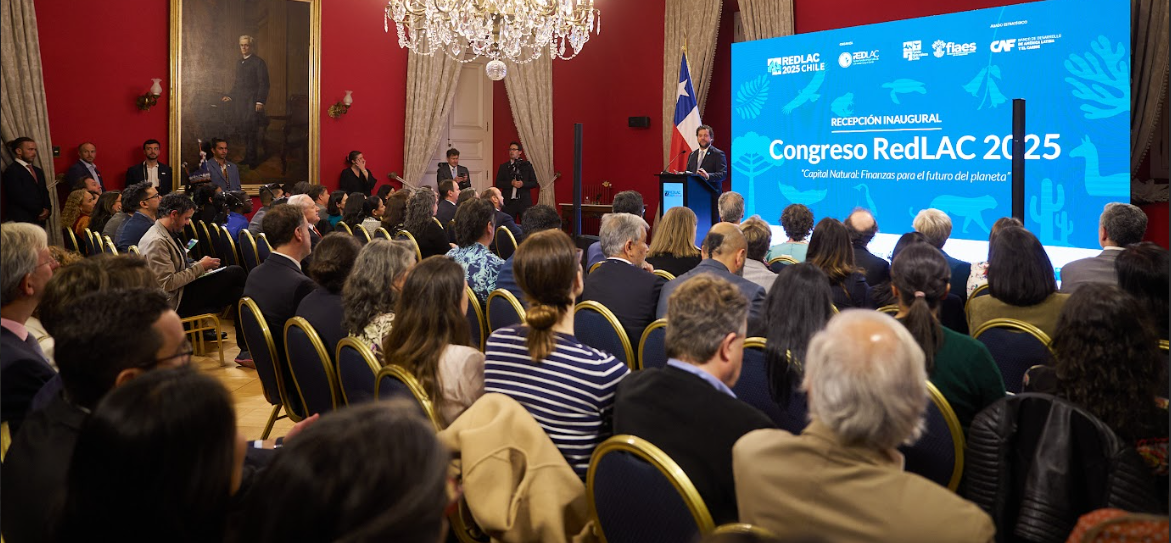
Photo: RedLAC
The RedLAC 2025 Congress, held in Chile from September 30 to October 3, was a gathering marked by commitment, innovation, and hope for the future of our planet. MAR Fund participated in this annual event, which brings together environmental funds and key stakeholders to strengthen financing dedicated to environmental conservation.
This edition was organized by Fondo Naturaleza Chile in collaboration with the Network of Environmental Funds of Latin America and the Caribbean (RedLAC) and took place in the cities of Santiago and Frutillar. From local voices to international experts, the dialogue centered on how financial innovation and cooperation are essential to tackling today’s most pressing environmental challenges.
RedLAC is a vibrant and growing community that has united 34 funds from 20 countries since its founding in 1999. Through initiatives that build capacity and manage knowledge, RedLAC fosters connections among the region’s environmental funds with the goal of conserving biodiversity and promoting sustainable development. Its members support the protection of over 900 natural areas, positioning RedLAC as a key actor in advancing innovative and collaborative financial solutions to safeguard the most critical ecosystems in Latin America and the Caribbean.
MAR Fund shared its experiences and continued learning from other organizations that, like us, are driven by the belief that conservation is possible when we act collectively.

Our Executive Director, María José González, took part in the panel on the trajectory and impact of environmental funds, where she recounted the history of the network’s creation and reflected on this pivotal moment for RedLAC as it becomes institutionalized. She also participated in the panel titled “Oceans in Danger: Conservation and Sustainable Management of the Marine Ecosystem,” where she addressed the urgent need to protect our oceans.
María José presented MAR Fund’s vision for the most effective strategies to conserve and sustainably manage coastal and marine ecosystems, and shared her perspective on the role of environmental funds in establishing long-term financial mechanisms that are both effective and sustainable. She emphasized that environmental funds should serve as “aggregators of partners and allies” in the design, establishment, and operation of mechanisms that are innovative yet complex in structure and management. The panel explored strategies to enhance the resilience of these ecosystems in the face of threats such as climate change, pollution, and overexploitation, underscoring that successful conservation requires a blend of scientific knowledge, innovative financing, and collaborative efforts among communities, governments, and scientists.
Presentations and panels addressed a range of timely topics, including ocean health, the potential of artificial intelligence for conservation, watershed restoration, and the urgency of adopting a Nature Positive approach. The final field visit to Vicente Pérez Rosales National Park served as a vivid and inspiring reminder of what we are protecting and why every effort matters.
Photos courtesy of RedLAC
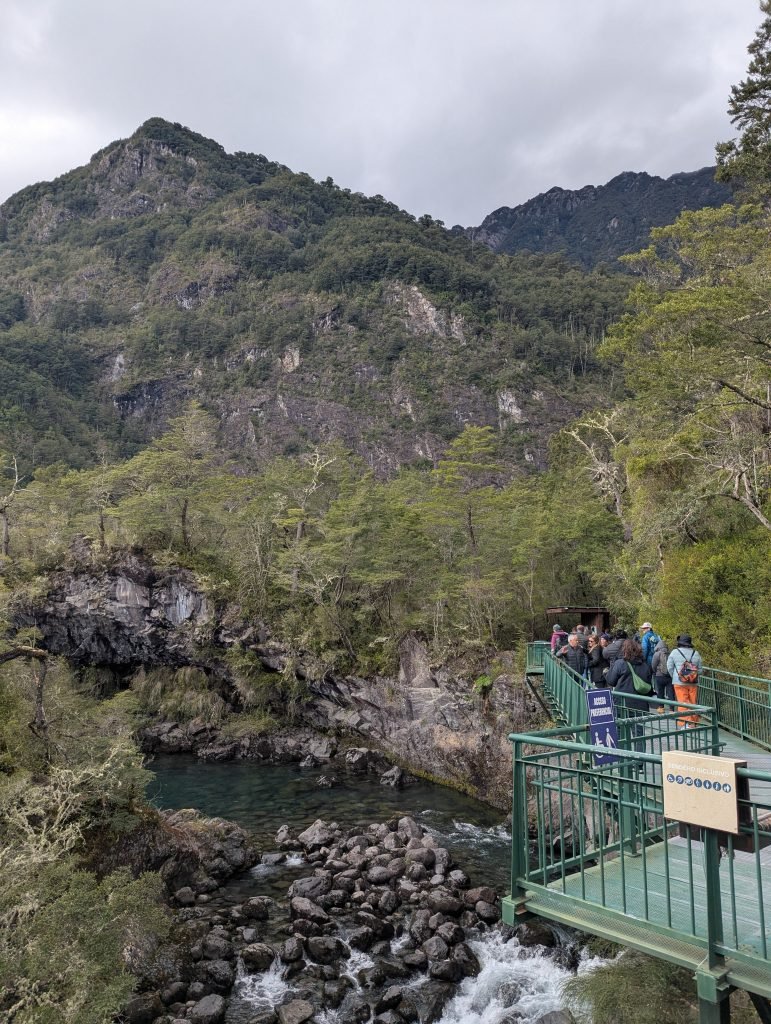 |
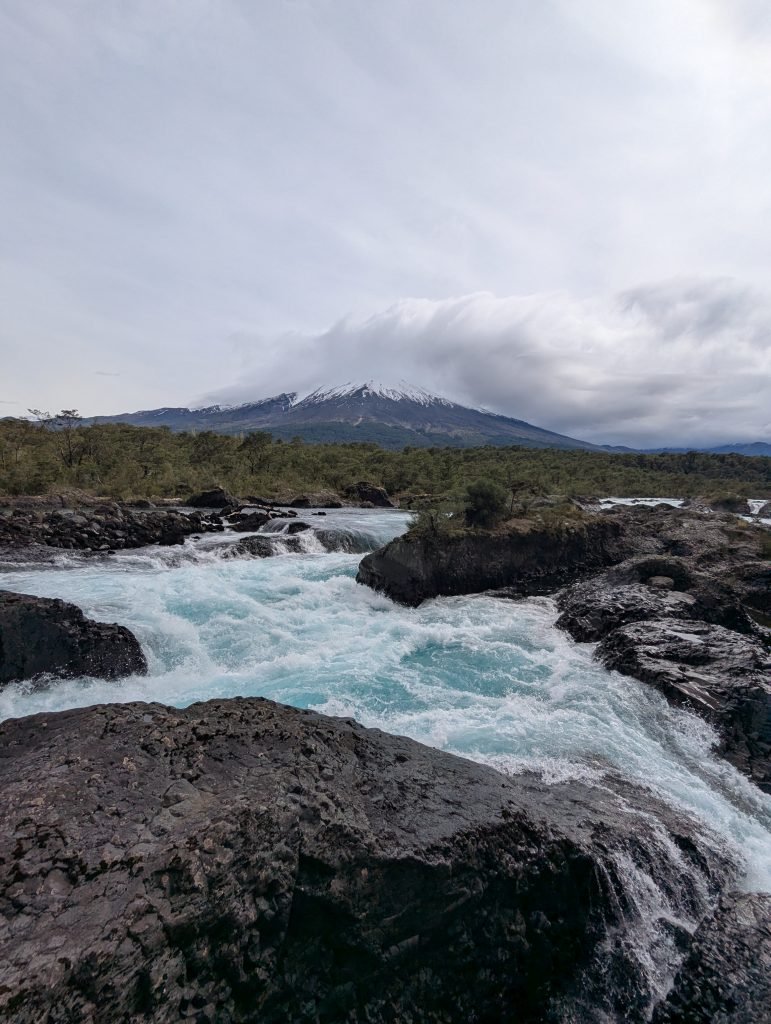 |
MAR Fund Shares Key Learnings at the Global Closing Workshop of the UNDP-AFCIA Climate Innovation Accelerator
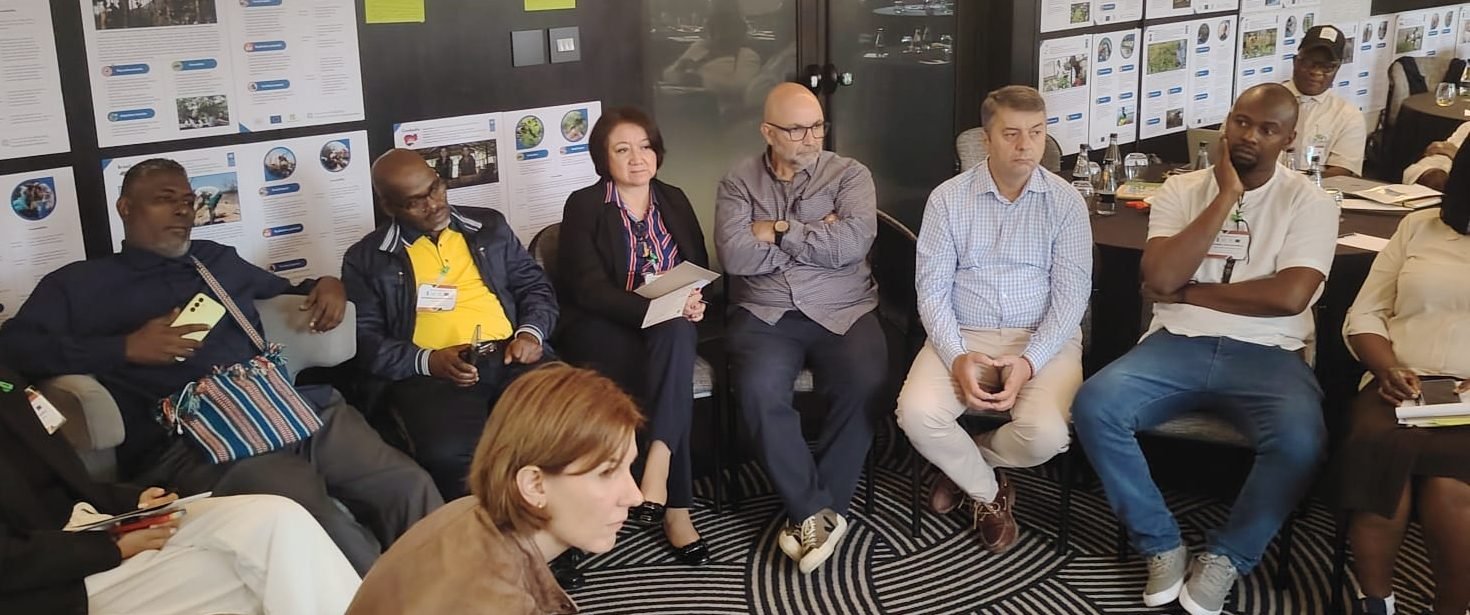
Over the past five years, the UNDP-AFCIA Climate Innovation Accelerator, supported by the Adaptation Fund, has backed projects that strengthen community resilience to climate change, improve access to climate financing, and promote inclusive solutions for women, youth, and local communities. Within this framework, MAR Fund stood out for its leadership in the Mesoamerican Reef (MAR) region through its parametric insurance and reef restoration program—positioning the MAR as an international benchmark for climate innovation.
In September, this global effort culminated in the Global Closing Workshop of the Climate Innovation Accelerator, where Claudia Ruiz, Coordinator of MAR Fund’s Reef Rescue Initiative (RRI), represented the organization.
The workshop brought together representatives from 44 organizations participating in the UNDP-AFCIA program. Attendees engaged with investors, exchanged experiences through roundtables and innovation labs, and held discussions on scalability and investment strategies.
As an implementing partner of the UNDP-AFCIA from April 2022 to October 2025, MAR Fund has contributed to the program through the project “The MAR Insurance Programme: Reef Restoration for Resilient Mesoamerican Reef Communities.”
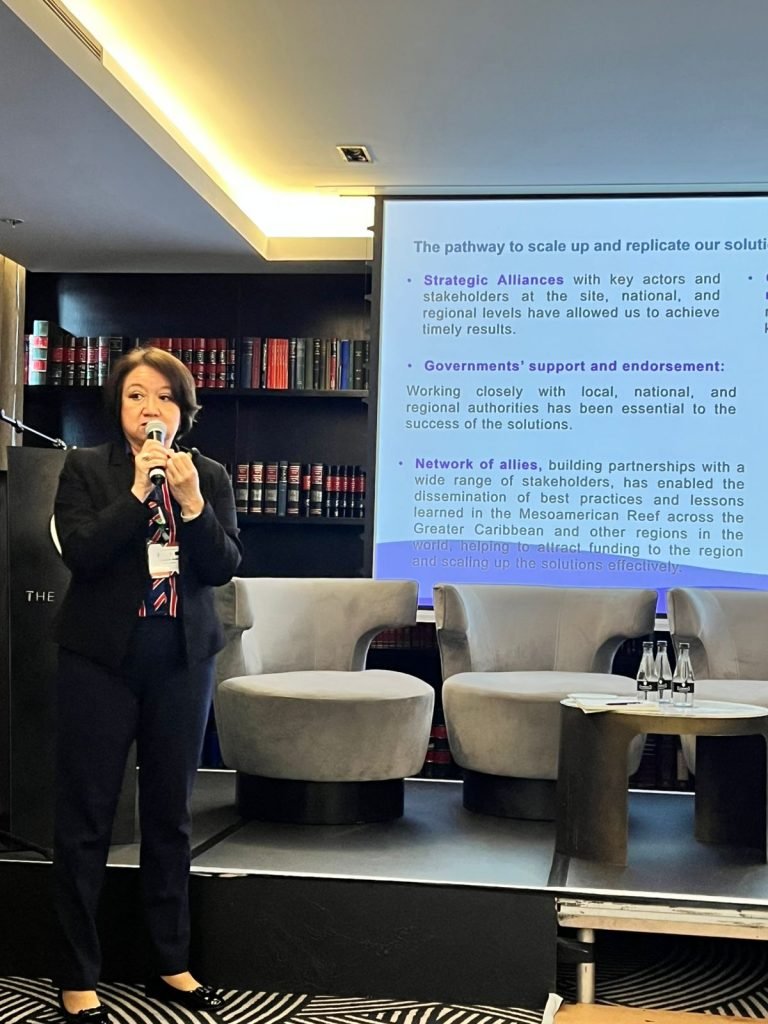
During the Policy Advocacy and Systemic Transformation session, MAR Fund shared its experience working with governments, offering key insights on public policy analysis and identifying strategic entry points to drive systemic change in favor of reef conservation and resilience. Claudia Ruiz joined experts from SPARC (India), Centro Sabiá (Brazil), and Fundación Proiectum Macrillanti (Argentina) in an interactive panel focused on collective learning.
MAR Fund also participated in the thematic session on Nature-based Solutions (NbS), Disaster Risk Reduction, and Recovery, where the parametric insurance program was highlighted, and key criteria for strengthening innovative NbS initiatives were discussed. These sessions created spaces for technical and strategic exchange, helping explore integrated approaches to scaling climate solutions tailored to local contexts and enhancing community resilience.
MAR Fund expresses its sincere gratitude to the UNDP-AFCIA Climate Innovation Accelerator and the Adaptation Fund for their support over the past five years, as well as to all participating organizations for the valuable exchange of knowledge, experiences, and lessons learned. This global collaboration continues to strengthen our collective response to climate change and reinforces our commitment to protecting the Mesoamerican Reef—safeguarding its vital role in the well-being of communities and biodiversity throughout the region.
Photos: Claudia Ruiz
Strengthening Leadership and Scaling Nature-Based Solutions: MAR-Leadership Build & Connect 2023
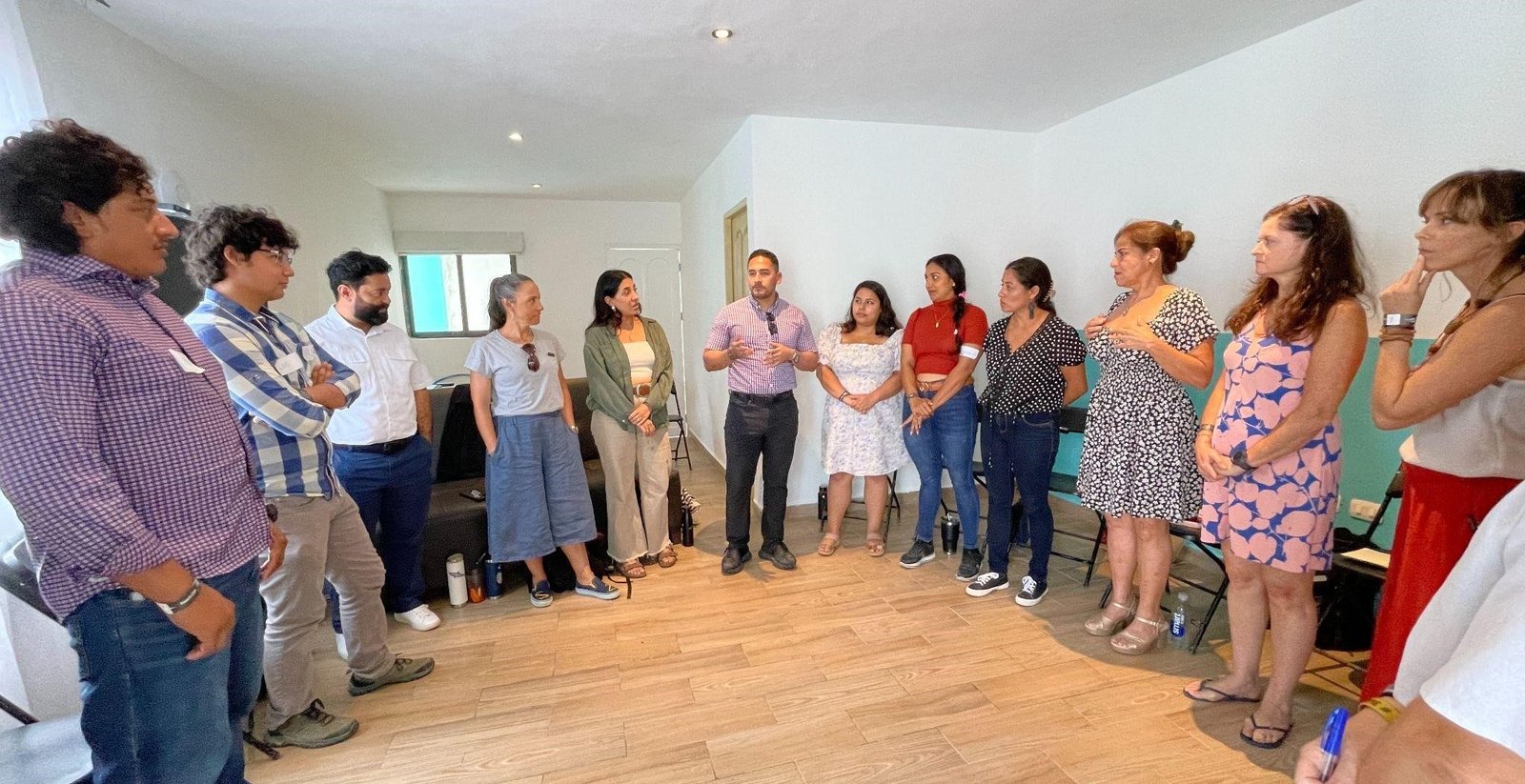
Photo: Sureste Sostenible A.C.
The 2023 cohort of the MAR Leadership (MAR-L), Build & Connect Program, supported by the Summit Foundation, the Mesoamerican Reef Fund (MAR Fund), and implemented by Sureste Sostenible, was successfully launched to empower environmental leaders and promote nature-based solutions entrepreneurship in the four countries of the Mesoamerican Reef (MAR) region: Mexico, Belize, Guatemala, and Honduras.
As part of the broader MAR+Invest initiative—supported by the Global Fund for Coral Reefs (GFCR), bringing together partner organizations like the Mexican Fund for the Conservation of Nature (FMCN), Healthy Reefs for Healthy People (HRHP), New Ventures, and Viwala— the program seeks to mobilize private capital and develop financial solutions that de-risk investment for businesses that generate positive impact on the MAR and its coastal communities, making it easier to access funding.
New conservation-driven market initiatives are emerging in the region with the potential to transform ecosystems and economies; however, these solutions often face immense barriers blocking the attraction of capital.
In the conservation sector, efforts are often constrained by a limited capacity for market-based initiatives, patient capital, and a lack of entrepreneurship and investment ecosystems. These gaps are further compounded by challenges in the investor sector, like the lack of investment, high-risk country profiles deterring international investment (except in Mexico), climate risk raising capital costs, high monitoring and evaluation costs, and few incentives for green and blue financing. As a result, the entrepreneurial ecosystem, along with innovators working toward reef-positive solutions, faces the lack of business development support and grants, complex and costly impact monitoring requirements, and restricted access to appropriate financing tools.
To directly respond to these barriers, the 2023 Build & Connect cohort selected early-stage, high-potential initiatives from across the MAR region that embody innovation and community leadership.
Key Components and Mentoring Strategy
The program was a 10-month journey that provided training for 21 leaders from the MAR who introduced 14 innovative business projects aimed at driving ecological, economic, and social change. Four of them are active projects, and the teams are highly committed to their success, having agreed in 2025 to continue strengthening their capacities to further develop and strengthen their business models.
Training covered financial tools, leadership skills, impact measurement, storytelling, business model canvas, and others.
More than 6,300 people have directly and indirectly benefited from the projects developed by the 2023 cohort. These efforts resulted in 25 collaborations and multiple exchanges of information and know-how among participants.

Creating a network of leaders who exchange knowledge and collaborate toward common goals.
Credits: Moments by Amaya Juan.
Future in Progress: The Growth of the Build & Connect Projects
Throughout the training, the 14 projects received monthly business mentoring to ensure continuous refinement. Following this process, the six most promising projects—selected for their coral-positive impact and business potential—benefited from a tailored business Acceleration Program provided by MAR+Invest’s partner, New Ventures. In addition, four virtual sessions connected participants with the MAR Leadership community, engaging 65 leaders from different generations to foster regional collaboration for reef conservation.
These 14 projects spanned diverse areas such as coral reef tourism restoration, invasive species control, waste management and recycling, artisanal souvenirs and jewelry made from invasive species, and sustainable food production. Eleven of these projects are women-led, highlighting the significant role of female entrepreneurs in the MAR conservation movement.
Key outcomes included identifying common challenges among the leaders and setting goals for the next 6-12 months, such as consolidating business strategies, forming partnerships, and launching products to market. Leaders also planned to generate profit within two years. The feedback session revealed that 100% of the participants felt the program strengthened their leadership and networking skills, with 81.3% rating it as “highly good.”
MAR-L 2023 Graduation and Strategic Outlook
A significant milestone of the program was the graduation of 16 leaders of the MAR-L 2023 cohort. Eleven of these leaders attended the four-day in-person graduation event in Puerto Morelos, Mexico, from March 12th to 15th, 2024, alongside key stakeholders from the conservation and business sectors. Participants received expert feedback on their project pitches, improving their communication with potential investors and donors. The event marked the culmination of a year-long process under the MAR+Invest initiative, which supports commercially viable projects that contribute to coral reef conservation. Currently, four of these projects have secured clients and are being implemented, helping to build an entrepreneurial ecosystem in the region.
The MAR Leadership Build and Connect 2023 program empowered change agents across the MAR region to transform nature-based solutions into impactful, market-ready ventures. The cohort focused on launching a targeted mentorship initiative for five selected participants from the 2023 cohort who are actively advancing nature-based solutions or positive-impact projects in the environmental sector. This selection was based on the scalability, implementation progress, and investment potential of their initiatives. The mentorship provided tailored technical, strategic, and financial guidance to help them accelerate their projects.
Strengthening Regional Collaboration for Lasting Impact
A user-friendly Monitoring & Evaluating System (M&E) was also designed to track the progress of MAR-L leaders, measuring the impact of their projects on the reef ecosystem and local communities. This centralized database already contains information on over 100 leaders and includes more than 50 indicators, exceeding initial expectations. The system combines qualitative and quantitative measures, providing a well-rounded assessment of the program’s effectiveness.
In all cohorts, the program’s strong focus on soft skills development significantly strengthens the fellows’ leadership, communication, and negotiation abilities, with 100% of participants reporting improvements in their leadership capabilities.
By integrating leadership training, strategic fundraising, and robust data management, this collaborative effort between MAR Fund and Sureste Sostenible has created a solid foundation for lasting environmental impact through local leaders and entrepreneurs— who are key to unlocking durable solutions for the Mesoamerican Reef. By mentoring early-stage initiatives, the program enhances the capacity of local actors to develop and implement nature-based solutions that restore reef ecosystems, mitigate environmental pressures, and foster sustainable livelihoods. Supporting leaders at this critical early phase increases the chances that their ventures will scale, attract investment, and generate long-term benefits for both communities and marine ecosystems.
Together, we are building a future where nature-based solutions evolve into thriving, impactful businesses that benefit both people and the planet.
 In-person workshops for the development of technical and soft skills of the MAR Leadership Build & Connect 2023 cohort, Puerto Morelos, México. Credits: Sureste Sostenible A.C.
In-person workshops for the development of technical and soft skills of the MAR Leadership Build & Connect 2023 cohort, Puerto Morelos, México. Credits: Sureste Sostenible A.C.
The MAR Insurance Programme enters its fifth year, advancing climate resilience across the Mesoamerican Reef
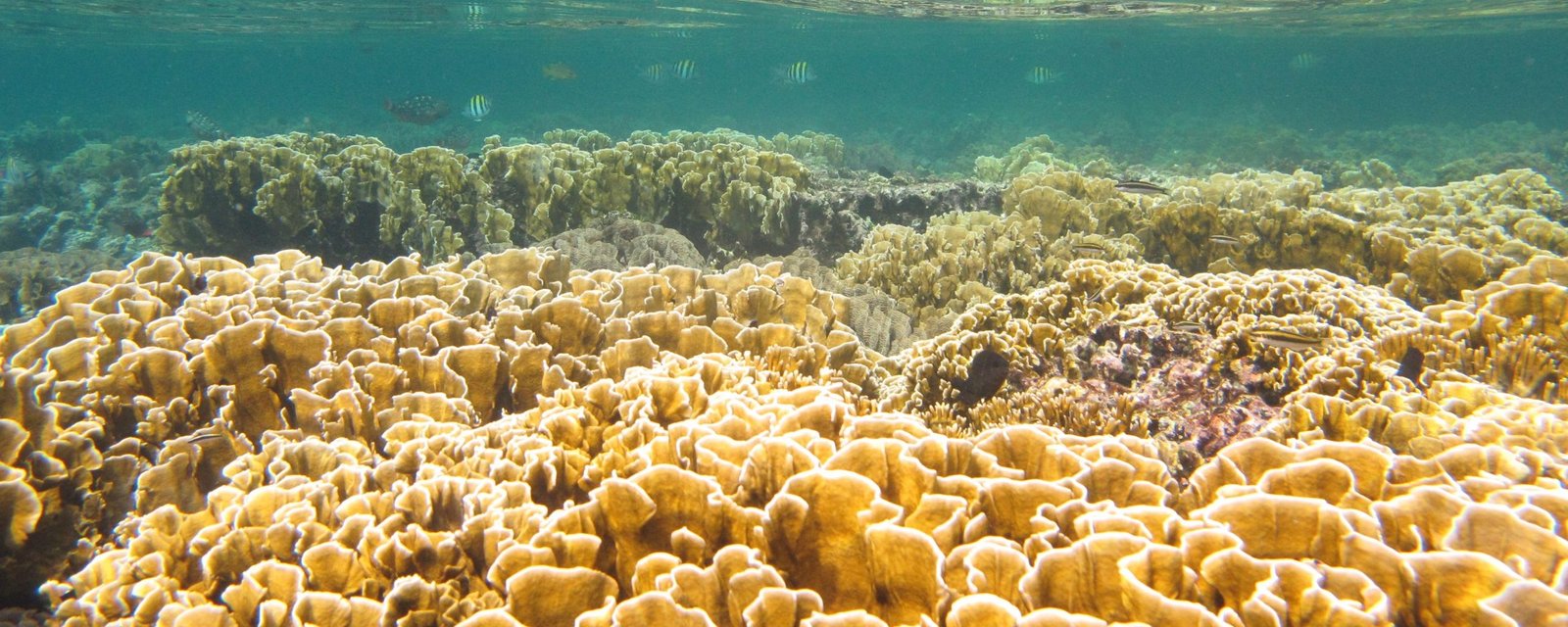
Photo: Elisa Areano
September 2025 — The Mesoamerican Reef Fund (MAR Fund) and Willis, a WTW business (NASDAQ: WTW), are pleased to announce the appointment of AXA Climate as the insurance solutions designer for the fifth annual placement of the MAR Insurance Programme. This year’s renewal has been made possible with financial support from the InsuResilience Solutions Fund (ISF), a key partner of the program since its first placement in 2021.
The MAR Region provides over US$4.5 billion in environmental services annually[1]. As a vital natural infrastructure, it plays a key role in protecting more than 5 million people living within 50 km of the coast throughout the MAR region. The MAR Insurance Programme, a cornerstone of MAR Fund’s Reef Rescue Initiative, is a regional financial mechanism that utilises parametric insurance to quickly deploy funds for community-led response efforts aimed at repairing reef damage caused by hurricanes. Covering 11 protected reef sites, the insurance supports response actions that strengthen the resilience of coral reef ecosystems and the coastal communities that depend on them, along the 1,000 km stretch of the Mesoamerican Reef (MAR) across Mexico, Belize, Guatemala, and Honduras[2].
“The MAR Insurance Programme is an effective mechanism that encompasses not only the insurance product itself, but also the response capacities. Through this programme, MAR Fund, its partners, and the governments of the region have built a network of reef guardians, ready to respond immediately after a hurricane impacts the coral reefs.”
—María José González, executive director of MAR Fund.
The programme demonstrated its value when Hurricane Lisa, a Category 1 storm, triggered a payout for the Turneffe Atoll National Marine Reserve in Belize in November 2022. This marked the first payout of the MAR Insurance Programme. Willis, serving as the calculation agent, confirmed that wind speeds reached 70 knots, activating the payout, which MAR Fund received within two weeks. Funds were delivered to MAR Fund´s Emergency Fund, another pillar of the Reef Rescue Initiative, and were quickly distributed to Turneffe Atoll Sustainability Association (TASA), which coordinated the response. Within 15 days of the hurricane, brigades assessed the reef damage and stabilised nearly 200 coral fragments.
“Willis is proud to be a part of the team that continues to deliver this ground-breaking initiative to the MAR region. The MAR Insurance Programme demonstrates how novel approaches to risk financing can play a critical role in ecosystem resilience, conservation financing and strengthening the economic opportunities of local communities in the face of the increasing impacts of climate change.”
—Juanita Blanco, Director, Alternative Risk Transfer Solutions at Willis.
Now entering its fifth year of operation, the portfolio has expanded from 4 sites in 2021 to 11 reef sites across the MAR region since 2023. This has been possible thanks to the generous premium support from ISF. During its implementation, the programme has been supported by partners, such as the Ocean Risk and Resilience Action Alliance (ORRAA) and the Adaptation Fund Climate Innovation Accelerator (AFCIA/UNDP). The Wildlife Conservation Society (WCS) has joined this effort, strengthening the coverage and capacities at two sites in southern Belize. Willis’ Alternative Risk Transfer team has placed the product competitively in markets, and for this year, AXA Climate is the insurance provider.
“At AXA Climate, we are proud to put our expertise in parametric insurance at the service of the MAR Insurance Programme. The mechanism has already demonstrated its usefulness by providing rapid financing for reef restoration after hurricane impacts. By combining science, insurance, and local action, it helps protect vital ecosystems and strengthen the resilience of the millions of people who depend on the Mesoamerican Reef.”
—Antoine Denoix, CEO of AXA Climate.
In the face of climate change, this innovative solution unlocks disaster response financing for the coral reefs of the MAR by using parametric insurance to provide timely and reliable funding for immediate response actions following a hurricane. This regional approach also strengthens collaboration across the region, resulting in a network of partners committed to exploRemove featured imagering the replication and scaling of the model to other sites, risks, and assets.
“The MAR Insurance Programme is paving the way for nature-based solutions against climate risks. The ISF is proud to continue supporting this innovative insurance programme protecting a unique natural treasure and providing livelihoods for vulnerable people in the MAR region.”
—Dr. Annette Detken, head of the InsuResilience Solutions Fund.
 |
About MAR Fund MAR Fund is a regional environmental fund that implements the Reef Rescue Initiative (RRI), whose main objective is to support the long-term ecological and economic viability of the Mesoamerican Reef. This is achieved through capacity building, strategic alliances, risk management instruments, and innovative financial mechanisms. Through the RRI, MAR Fund collaborates with local conservation organisations and government agencies at each insured reef site to strengthen their capacity to implement reef response plans in the aftermath of hurricanes. To enhance the effectiveness and sustainability of reef response efforts in the region, MAR Fund manages two innovative risk financing mechanisms: the Emergency Fund and the MAR Insurance Programme. In the event of a payout, insurance funds will be disbursed within days to the MAR Fund’s existing Emergency Fund. These funds will then be immediately transferred to predefined organisations, which will mobilise response brigades to carry out actions aimed at mitigating hurricane impacts on coral reefs. |
 |
About InsuResilience Solutions Fund The mission of the InsuResilience Solutions Fund (ISF) is to support innovative solutions to mitigate the negative impacts of climate change. Managed by Frankfurt School of Finance & Management and funded by KfW Development Bank on behalf of the German government, the ISF’s objective is to close the protection gap by focusing on solutions for vulnerable populations who are over-proportionately exposed to climate risks. Therefore, ISF fosters the development of needs-based and financially sustainable climate risk insurance products in developing and emerging countries. ISF has supported the MAR insurance programme since its inception in 2021, and continues to provide premium financing support until 2027. |
 |
About WTW At WTW (NASDAQ: WTW), we provide data-driven, insight-led solutions in the areas of people, risk and capital. Leveraging the global view and local expertise of our colleagues serving 140 countries and markets, we help organisations sharpen their strategy, enhance organisational resilience, motivate their workforce and maximise performance. Working shoulder to shoulder with our clients, we uncover opportunities for sustainable success—and provide perspective that moves you. |
 |
About AXA Climate AXA Climate, a subsidiary of the AXA group dedicated to climate change adaptation and transition, supports sectors such as agribusiness, industry, finance, and the public sector by offering parametric insurance products, consulting services, over 40 hours of online training, and a suite of digital tools for climate projections. By leveraging science and data, AXA Climate helps companies and public players to tackle key environmental challenges and enables them to implement concrete adaptation and mitigation strategies tailored to their local contexts and specific needs. |
[1] Economic Valuation of the Ecosystem Services of the Mesoamerican Reef, and the Allocation and Distribution of these Values, which was prepared by Metroeconomica, World Resources Institute-Mexico, and the Ocean Foundation, for the Inter-American Development Bank. The full report was published in 2021 and can be accessed at: https://publications.iadb.org/en/economic-valuation-ecosystem-services-mesoamericanreef-and-allocation-and-distribution-these
[2] The execution of this Programme shall not have any effect with respect to, or in connection with, any sovereignty claims over any territory (land, insular and maritime) claimed by the Republic of Guatemala and/or Belize; nor shall it have any effect over the rights and/or claims of either country over such territory.
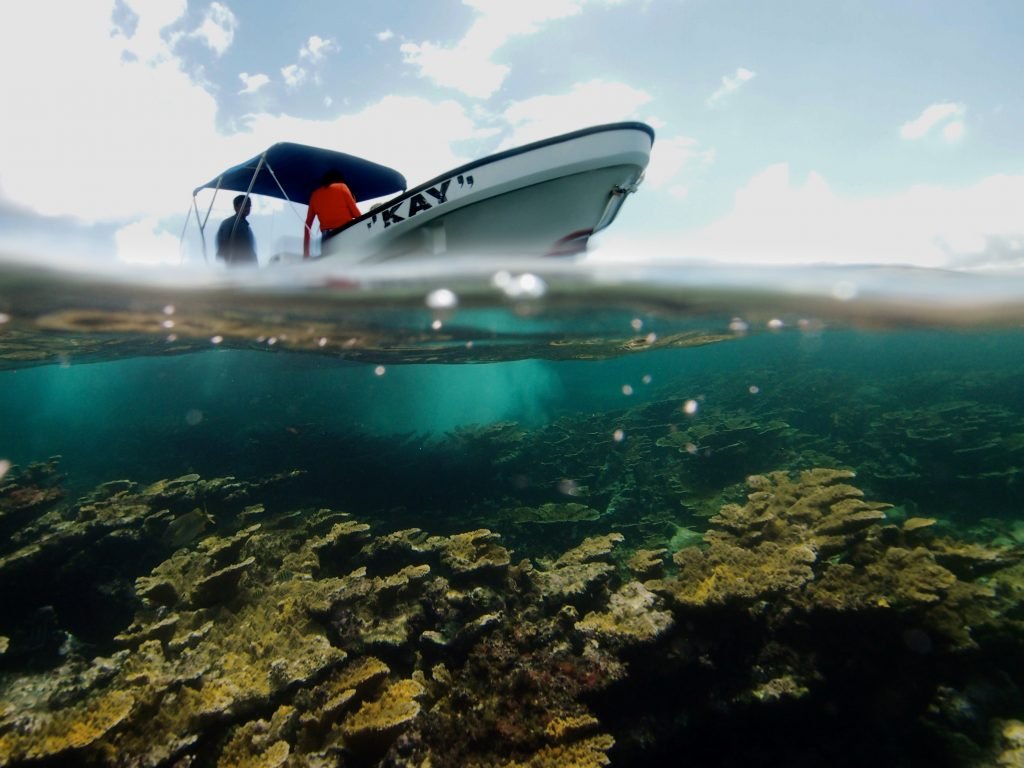
Photo: Lorenzo Álvarez
Mexico commemorates 20 years of MAR Fund’s work for regional marine conservation
The city of Cancun was the setting for the second commemorative meeting marking 20 years of the Mesoamerican Reef Fund (MAR Fund). The celebration took place on August 26 and brought together government representatives, community leaders, civil society organizations, project managers, and strategic allies with whom MAR Fund has worked for two decades to strengthen the conservation, restoration, and sustainable use of marine and coastal resources in the four countries that share the Mesoamerican Reef: Mexico, Belize, Guatemala, and Honduras.
MAR Fund was established as a regional platform to channel resources, strengthen local capacities, and coordinate efforts in the Mesoamerican Reef System (MAR). María José González, executive director of MAR Fund, gave an overview of the results achieved over the past two decades and added:
“What we have built together is a solid foundation for action in the coming years: more partnerships, more innovation, and more direct action on the ground.”
Throughout history, she acknowledged the founding funds—including the Mexican Fund for the Conservation of Nature—for their key role in institutional consolidation. She also highlighted the importance of partnerships with government entities, the National Commission for Protected Natural Areas (CONANP), the Quintana Roo Ministry of the Environment (SEMA), and the Quintana Roo Institute of Biodiversity and Protected Natural Areas (IBANQROO), which have been strategic partners in the implementation of conservation actions in Mexico. The same has been true of counterpart environmental authorities in Belize, Guatemala, and Honduras, which have helped strengthen the MAR Fund’s regional approach.
One of the highlights of the celebration was the presentation of two testimonials on the work that has been built with partners in Quintana Roo: Mariela Gómez Dzib, from the Cooperativa Mujeres del Mar, and Alejandro López Tamayo, general director of Centinelas del Agua, who shared the growth and impact their organizations have had thanks to the support of MAR Fund.
The event also included a tribute to individuals who have left their mark on the history of SAM. María del Carmen García Rivas and Lourdes Vásquez Yeomans received recognition for their careers and commitment to marine conservation. Both biologists and researchers, represent pillars of knowledge and action that continue to inspire new generations.
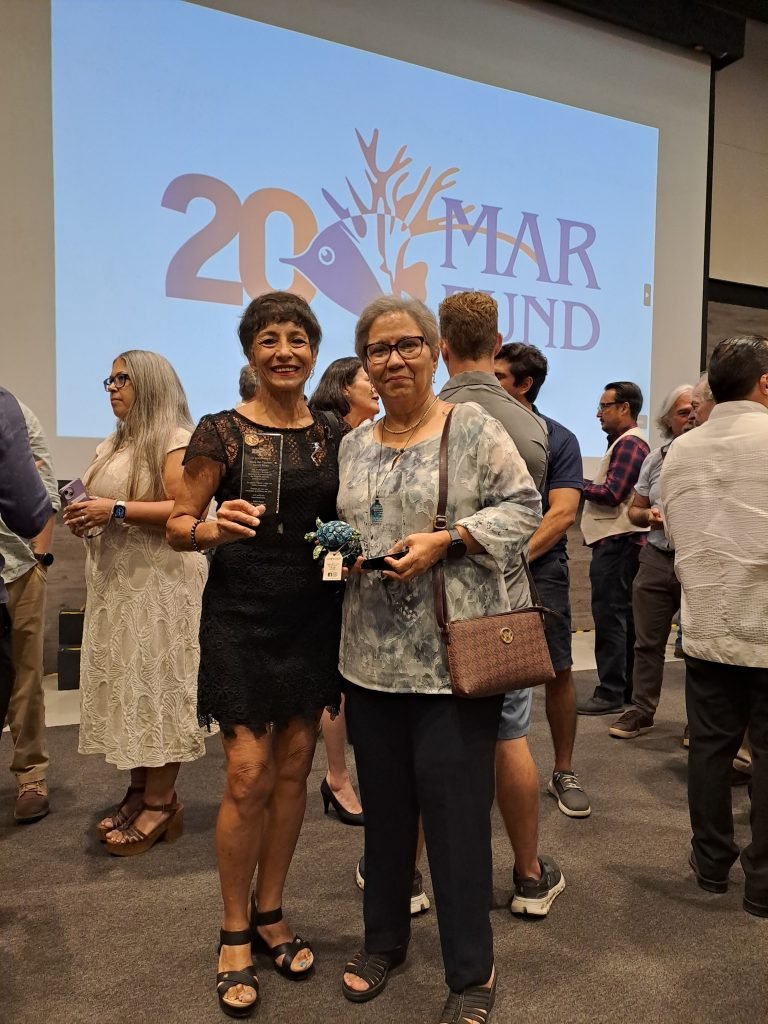
Lorenzo de Rosenzweig, first chair of the MAR Fund board of directors during his tenure as CEO of FMCN, shared his thoughts on the fund’s journey and future. He also recalled how the creation of the Latin American and Caribbean Environmental Funds Network (RedLAC) was key for all environmental funds in the region.
Javier Carballar Osorio, representing the Governor of Quintana Roo, Mara Lezama Espinosa, acknowledged the work of MAR Fund in southeastern Mexico. He highlighted the value of regional partnerships as a driver of conservation and the strengthening of ecological connectivity in the Mesoamerican Reef. His speech reaffirmed the state government’s commitment to regional cooperation, applied science, and the sustainable development of coastal communities.
The day ended with a toast and a showcase of productive projects led by women: Xcal’arte (jewelry made from lionfish), Re-utilizando (upcycled jewelry), and Mujeres BioFaunTásticas (handicrafts inspired by marine fauna), which reflect the talent and creativity of coastal communities.
Beyond quantifiable results, MAR Fund’s legacy is reflected in more resilient communities, better-protected ecosystems, and a growing regional collaboration network. The future of the Mesoamerican Reef depends on joint action. With this vision, MAR Fund seeks to continue building sustainable solutions alongside its allies.
PHOTOS: María José Hernández, Judith Morales, Cintia Landa, Amy Jones y Aaron Siller.
Making Waves: How SACD’s “River-to-Reef” Expeditions Are Transforming Conservation and Community in Northern Belize
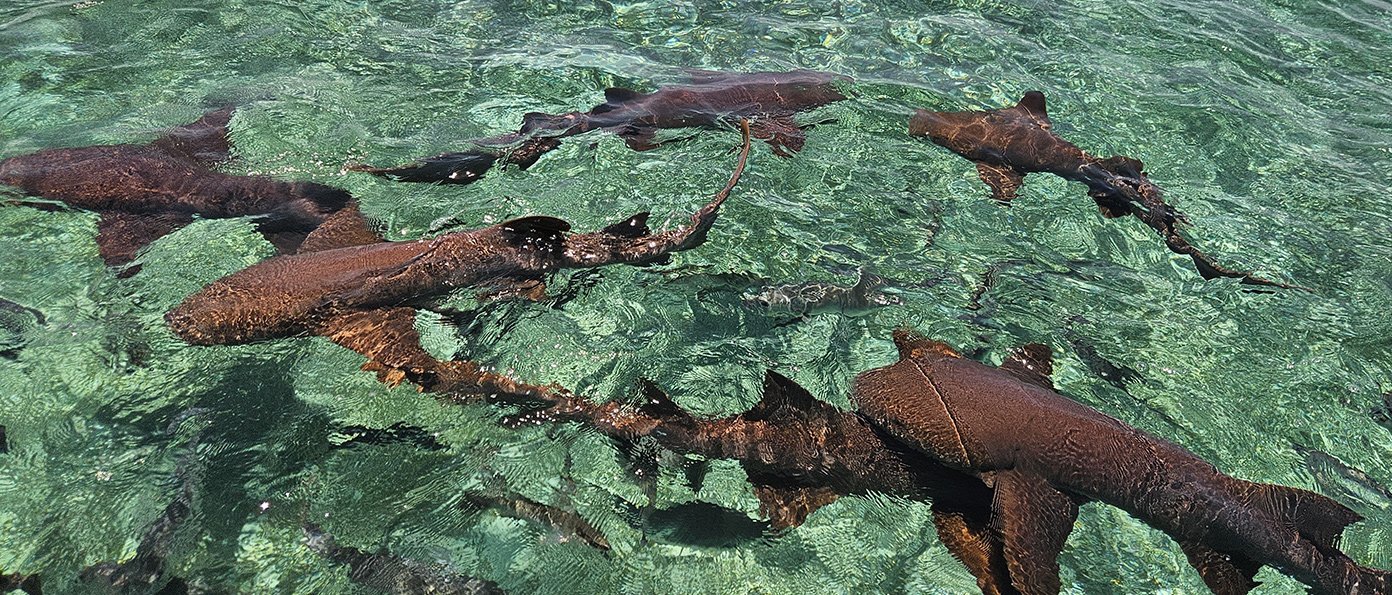
Photo: Diveana Samos/ SACD
Author: Samuel Barrett
The Sarteneja Alliance for Conservation and Development (SACD) is revolutionizing conservation funding with an innovative, eco-friendly approach! Through the “River-to-Reef” academic expedition hosting initiative, SACD is not only protecting the incredible Corozal Bay Wildlife Sanctuary (CBWS) but also empowering local communities—all while securing financial sustainability for years to come.
An Unforgettable Journey
Picture this: students and researchers from across the globe embark on an immersive, conservation-focused adventure in the stunning seascapes of CBWS. Between May 2023 and February 2025, SACD transformed its Tourism Expedition Hosting Facility (TEHF) into a hub for experiential learning, bringing visitors face-to-face with the vibrant marine life and rich cultural heritage of Sarteneja Village, Belize. This groundbreaking initiative is a game-changer, proving that conservation and sustainable tourism can go hand in hand!
Breaking Records & Changing Lives
SACD has generated an impressive tourism revenue during 2024, covering more than 21% of its annual budget; an unprecedented leap toward financial independence and an increase of nearly 5% compared with 2023. With seven international expeditions hosted in 2023-2024, the initiative has created more than 20 new employment opportunities each year, giving boat captains, tour guides, cooks, caretakers, and drivers the chance to thrive. Conservation isn’t just about protecting nature; it’s about uplifting the communities who rely on it.
Sustainability is at the heart of this initiative. The TEHF was built with eco-friendly systems—including solar power and a hydrostatic septic system—to reduce its environmental footprint and help protect the surrounding Corozal Bay Wildlife Sanctuary. It’s a model for green tourism in action. The impact goes beyond infrastructure. A new partnership with Centro Escolar Mexico Junior College (CEMJC) launched a pilot academic collaboration, giving students hands-on experience in conservation and sustainable tourism. This exciting initiative is set to become an annual component of CEMJC’s Sustainable Tourism curriculum, inspiring future leaders in environmental stewardship.
More Than Conservation – A Life-Changing Impact
This initiative is about more than just protecting marine ecosystems—it’s about forging powerful connections between people and nature. Students have dived into hands-on conservation work, from mangrove restoration and biodiversity monitoring to experiencing the cultural significance of traditional fishing and fostering strong community bonds. By integrating local communities in all aspects of the expeditions, students leave Belize with a deepened understanding of conservation and culture, while local fishers, tour guides, and families benefit from an expanding eco-tourism economy. When nature wins, communities win too.
The Future is Bright – And It’s Just Getting Started
With four expeditions already secured for 2025, SACD is set for even greater impact. The goal is clear—expand academic partnerships, ramp up marketing efforts, and bring even more visitors to experience the magic of CBWS. By proving that conservation can drive economic growth, SACD is setting a gold standard for sustainable eco-tourism.
Through bold vision, innovative thinking, and an unwavering passion for conservation, SACD is charting a new course—one where nature thrives, communities prosper, and adventure awaits!
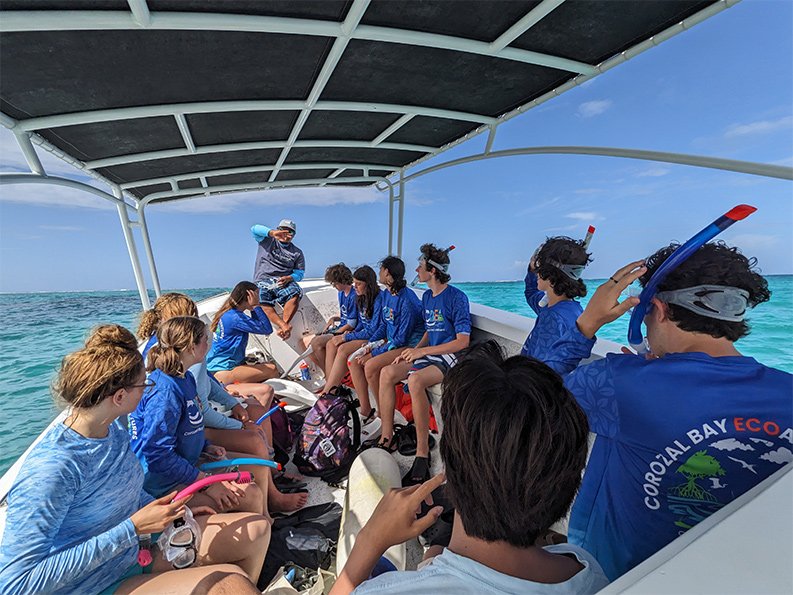
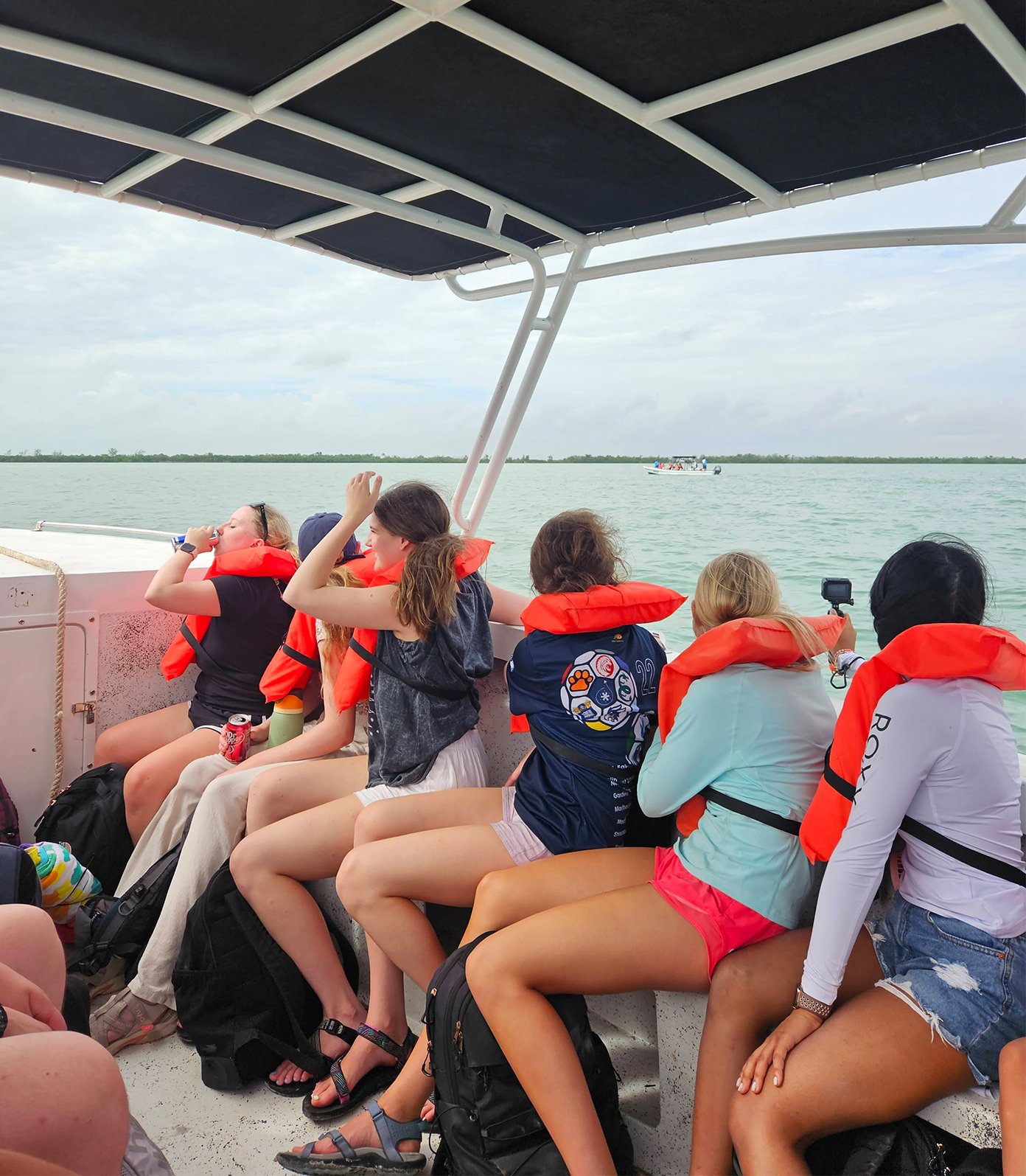
Students from SACD’s second summer Global Leadership Adventure expedition group of 2024.
Photo: Diveana Samos/ SACD
This note was shared by SACD as part of the conclusion of Project: STRENGTHENING THE FINANCIAL SUSTAINABILITY OF SACD THROUGH ECO-FRIENDLY “RIVER-TO-REEF” ACADEMIC EXPEDITION HOSTING, corresponding to the 15th call for proposals for the MAR Fund Small Grants Program, (SGP) Since 2006, the SGP has funded more than 150 key initiatives for marine and coastal conservation in the Mesoamerican Reef System.



